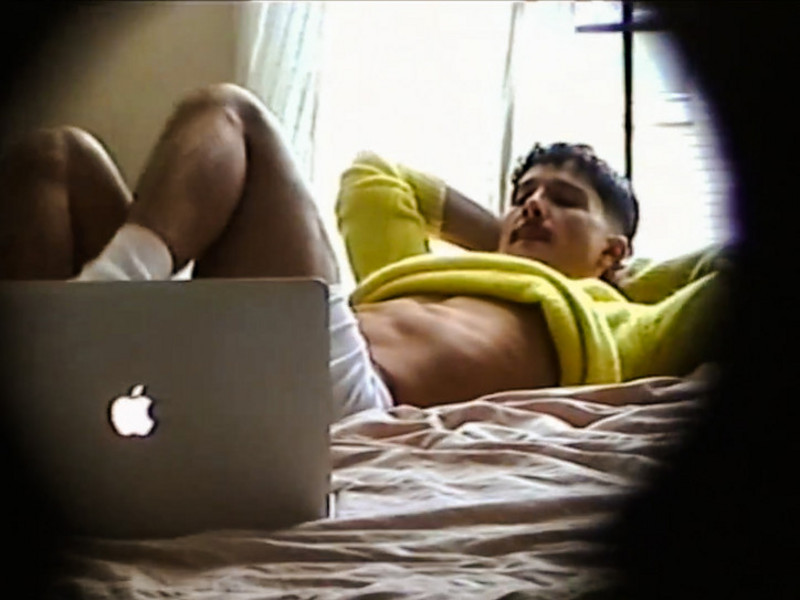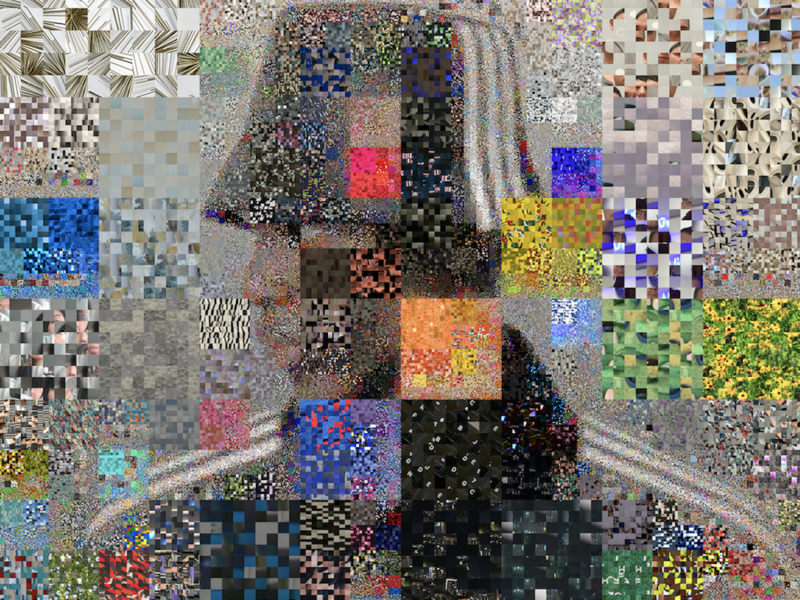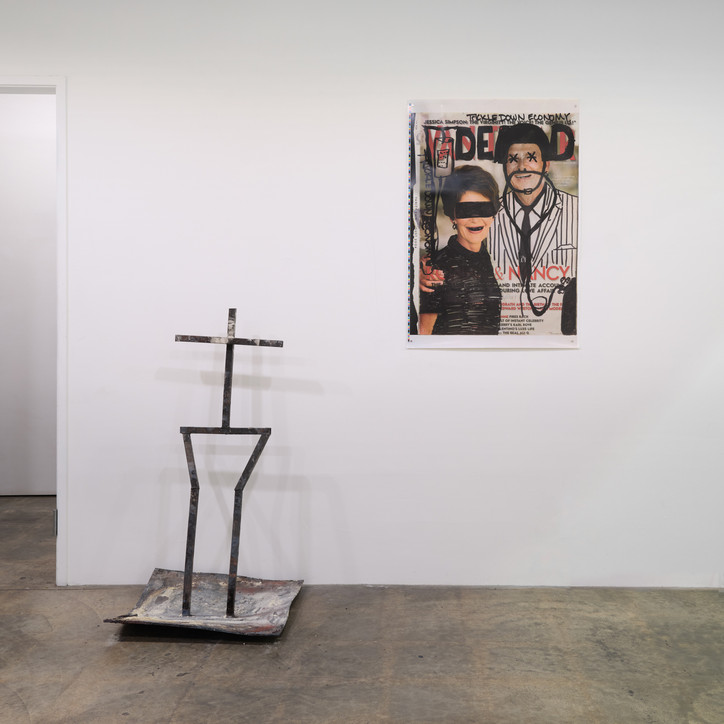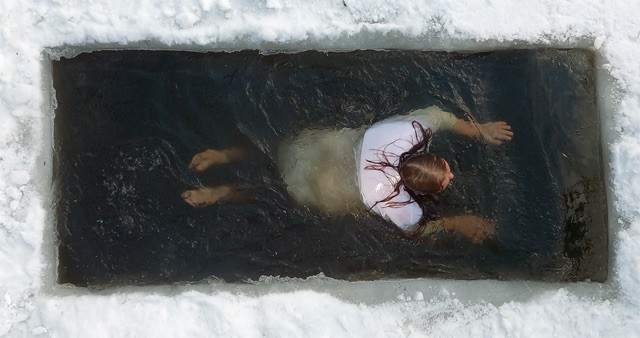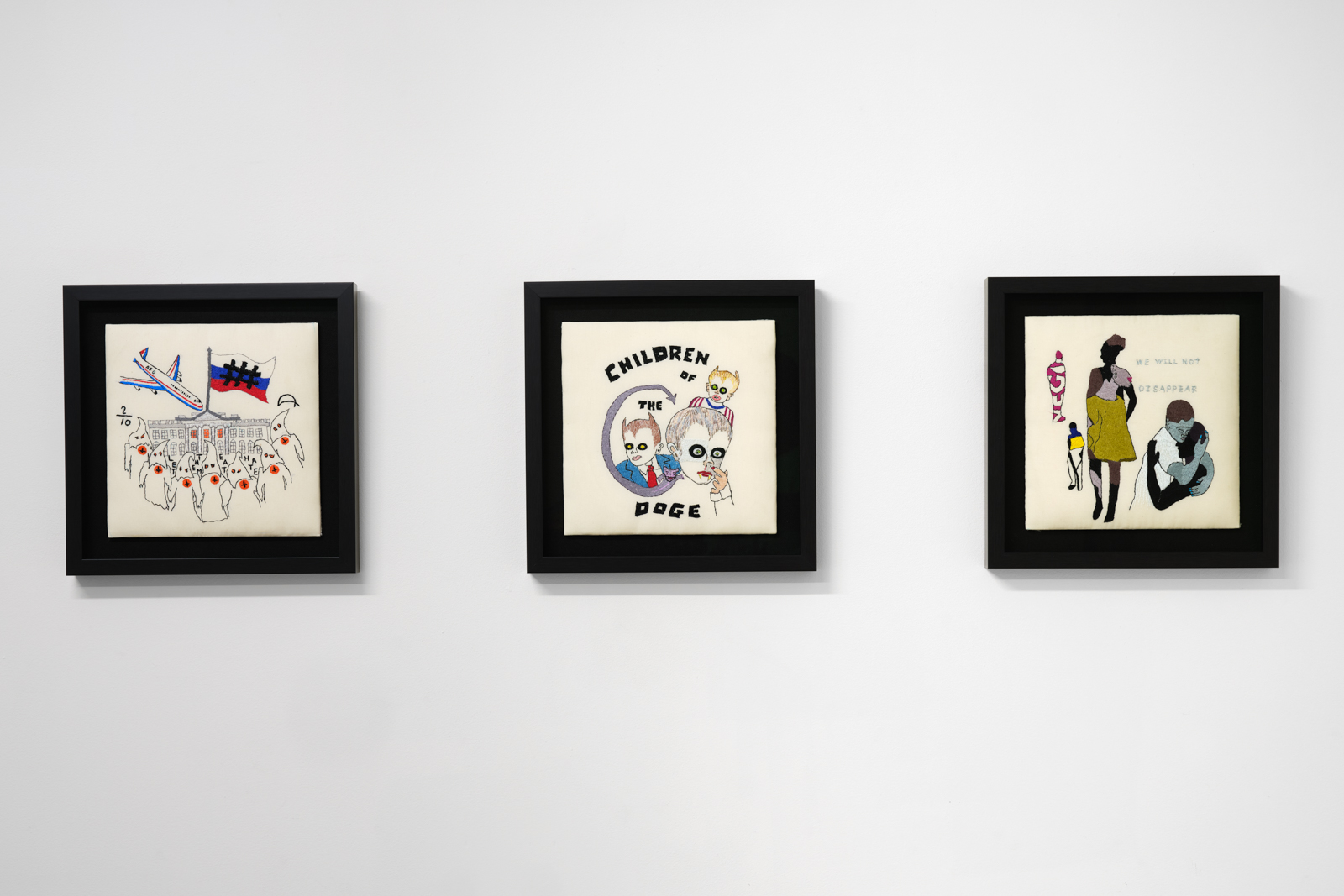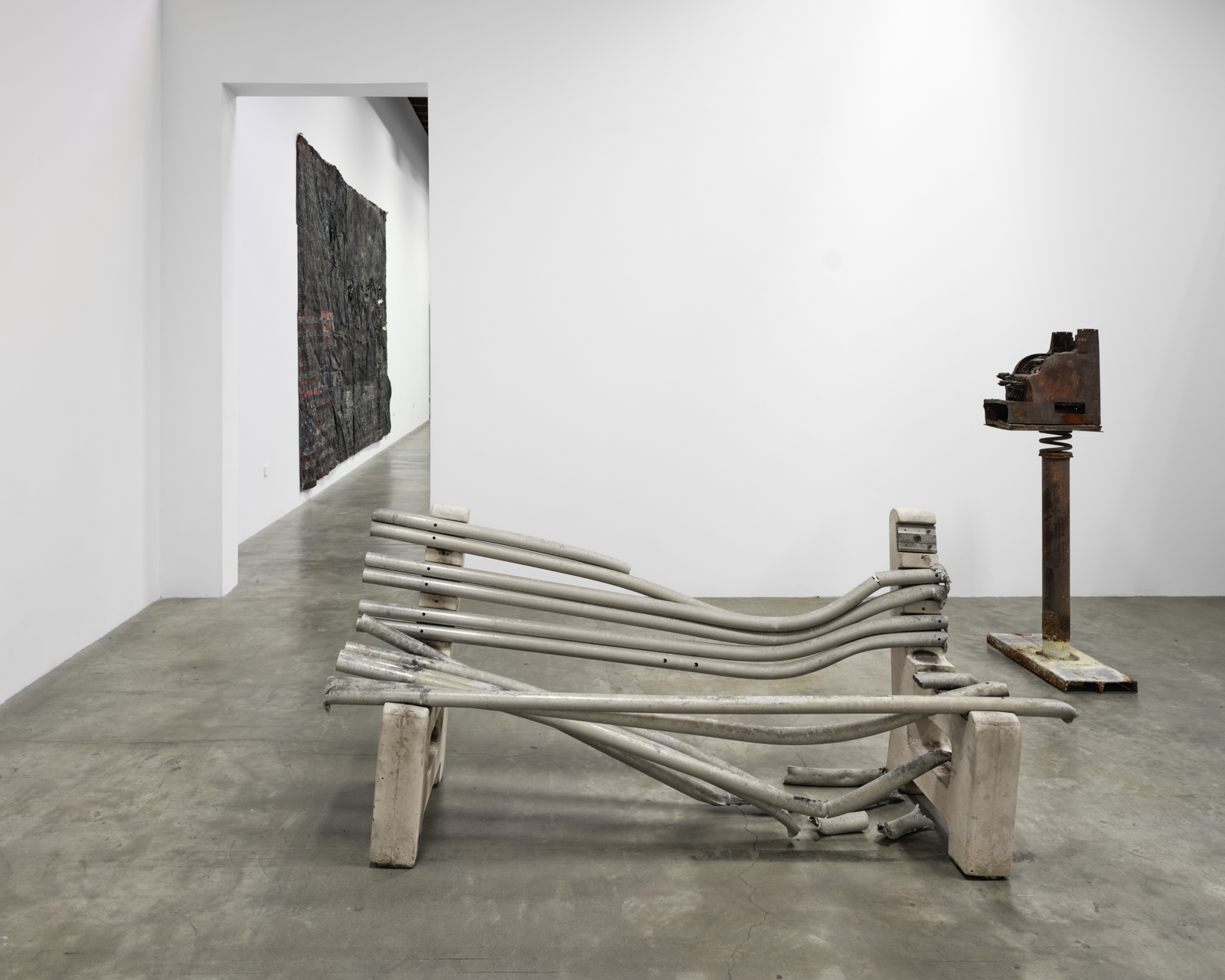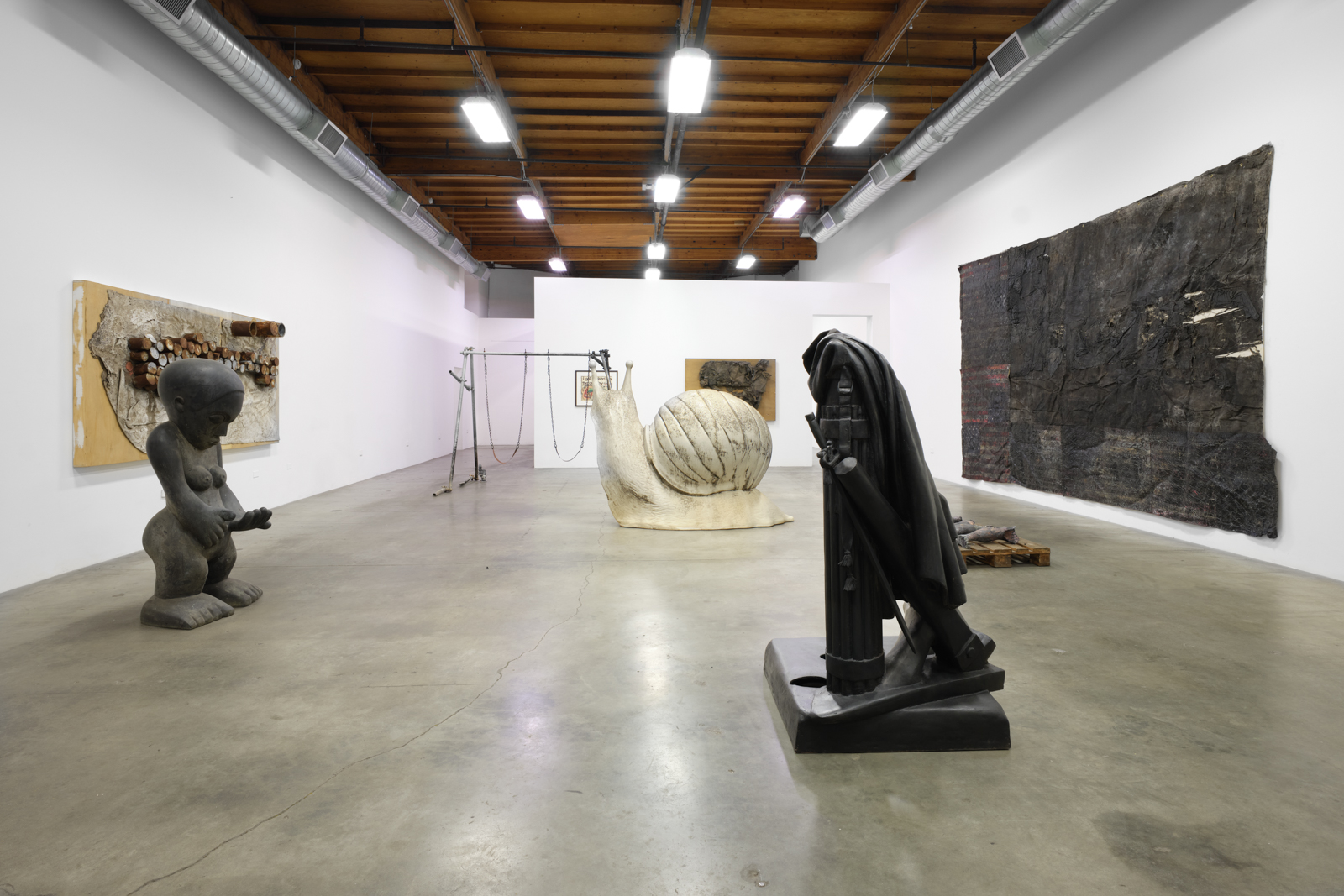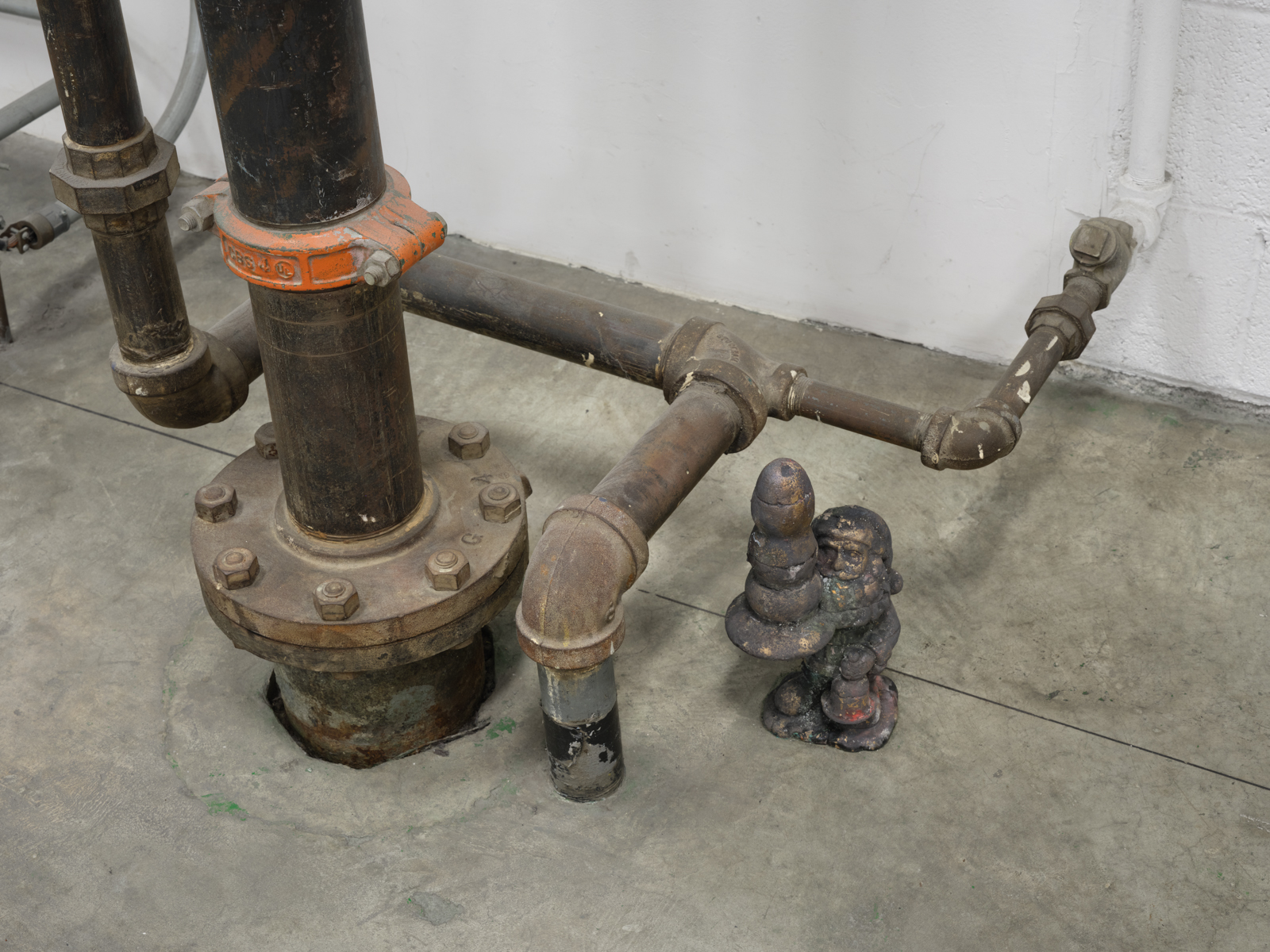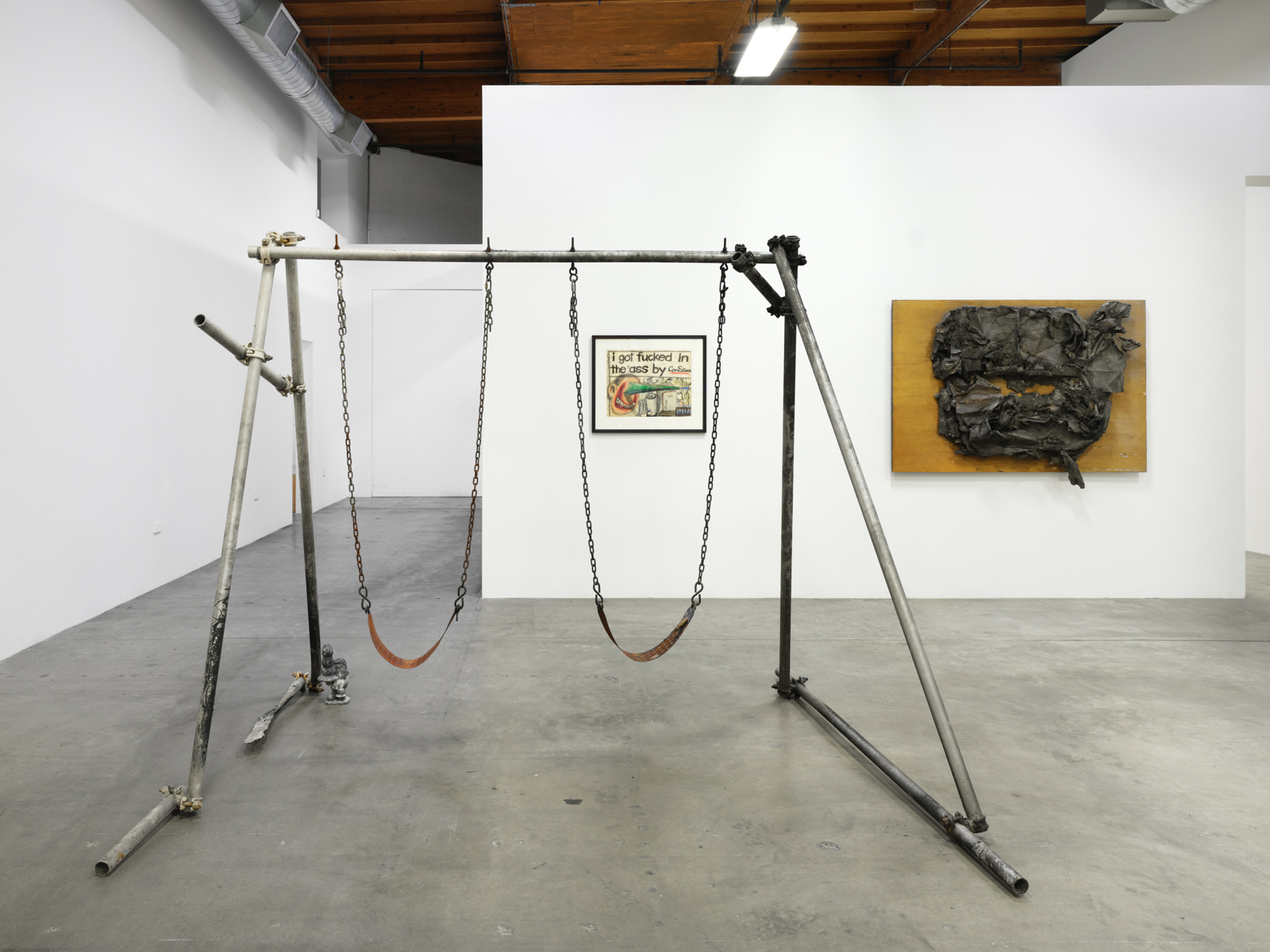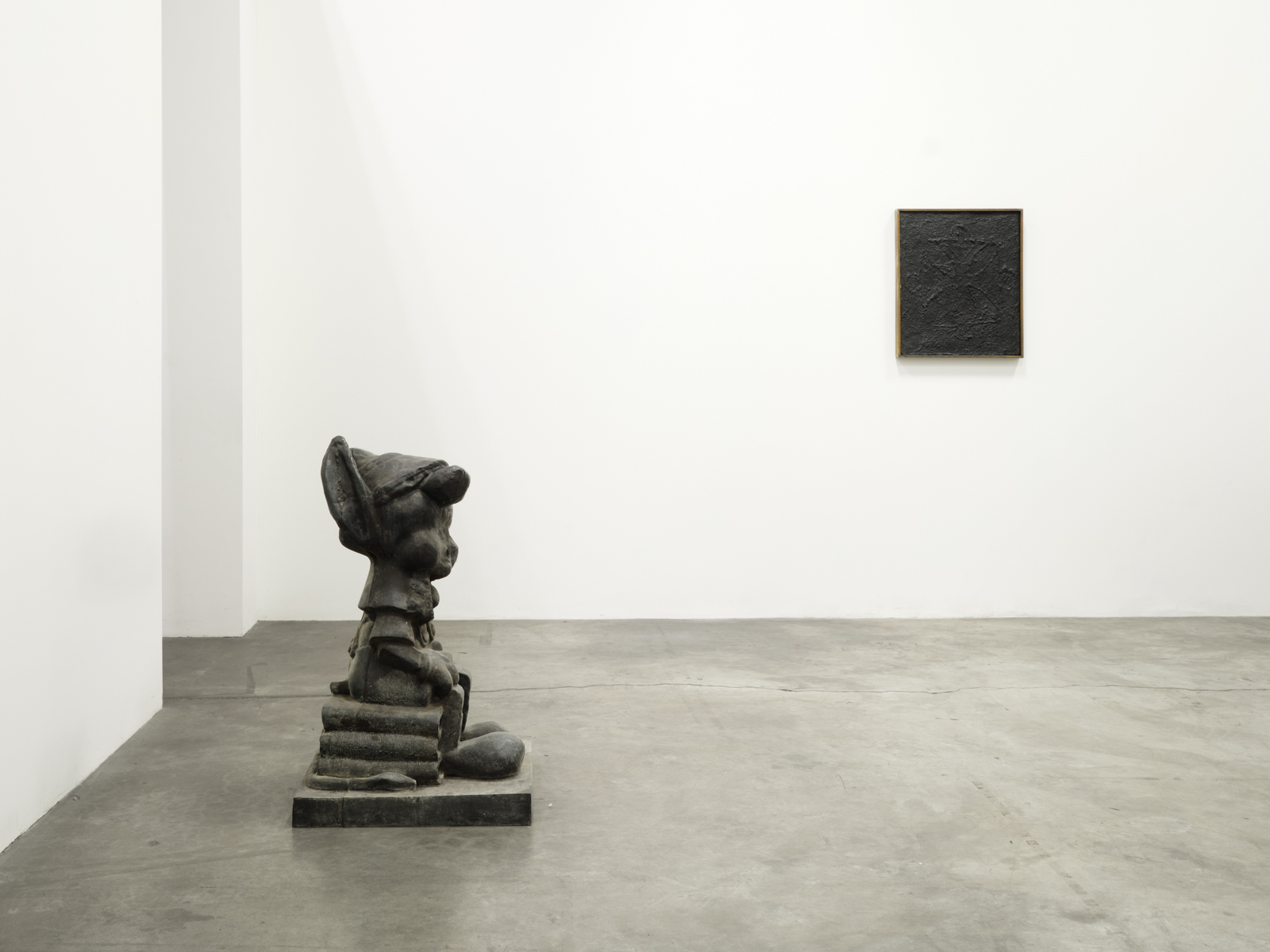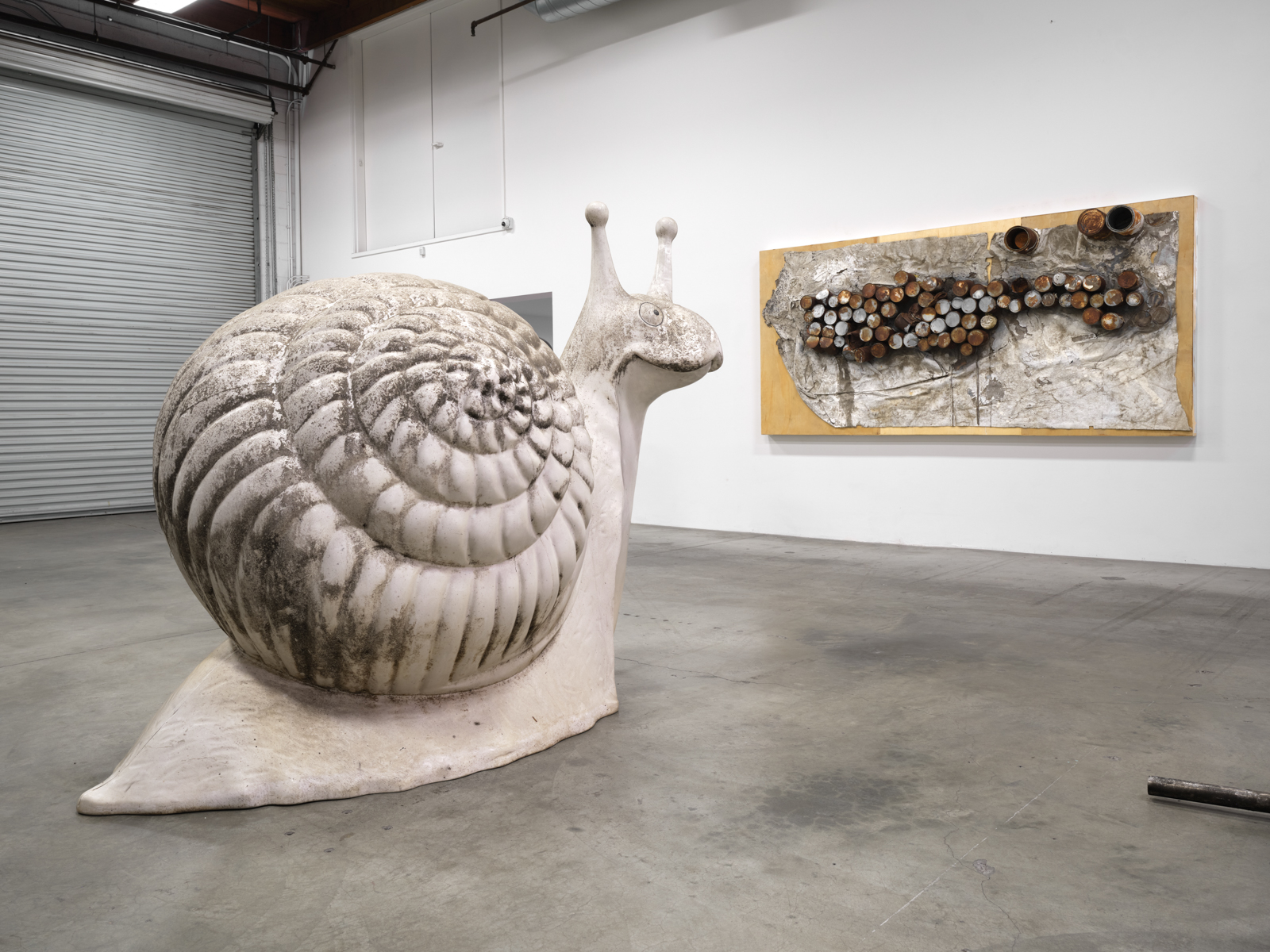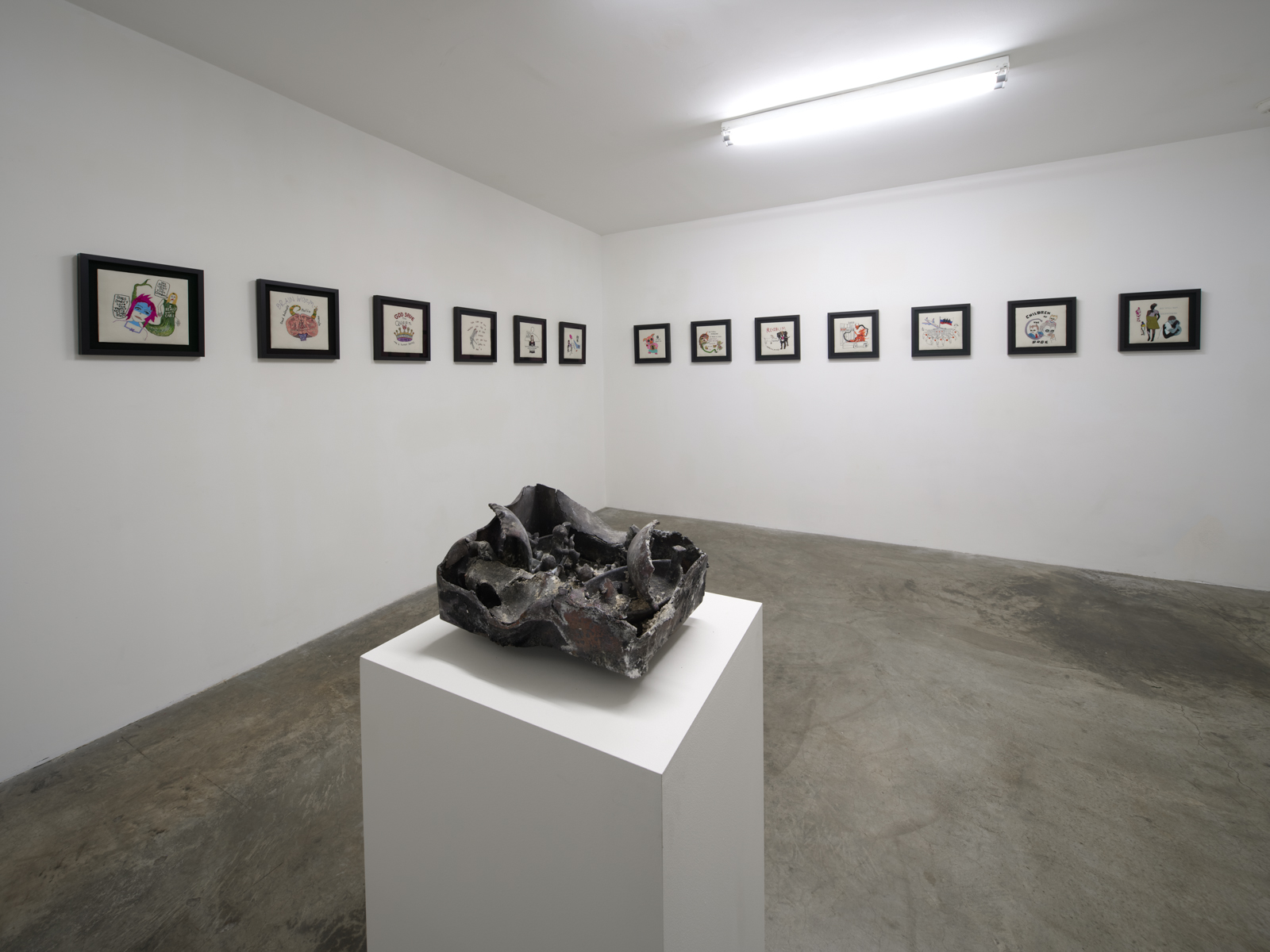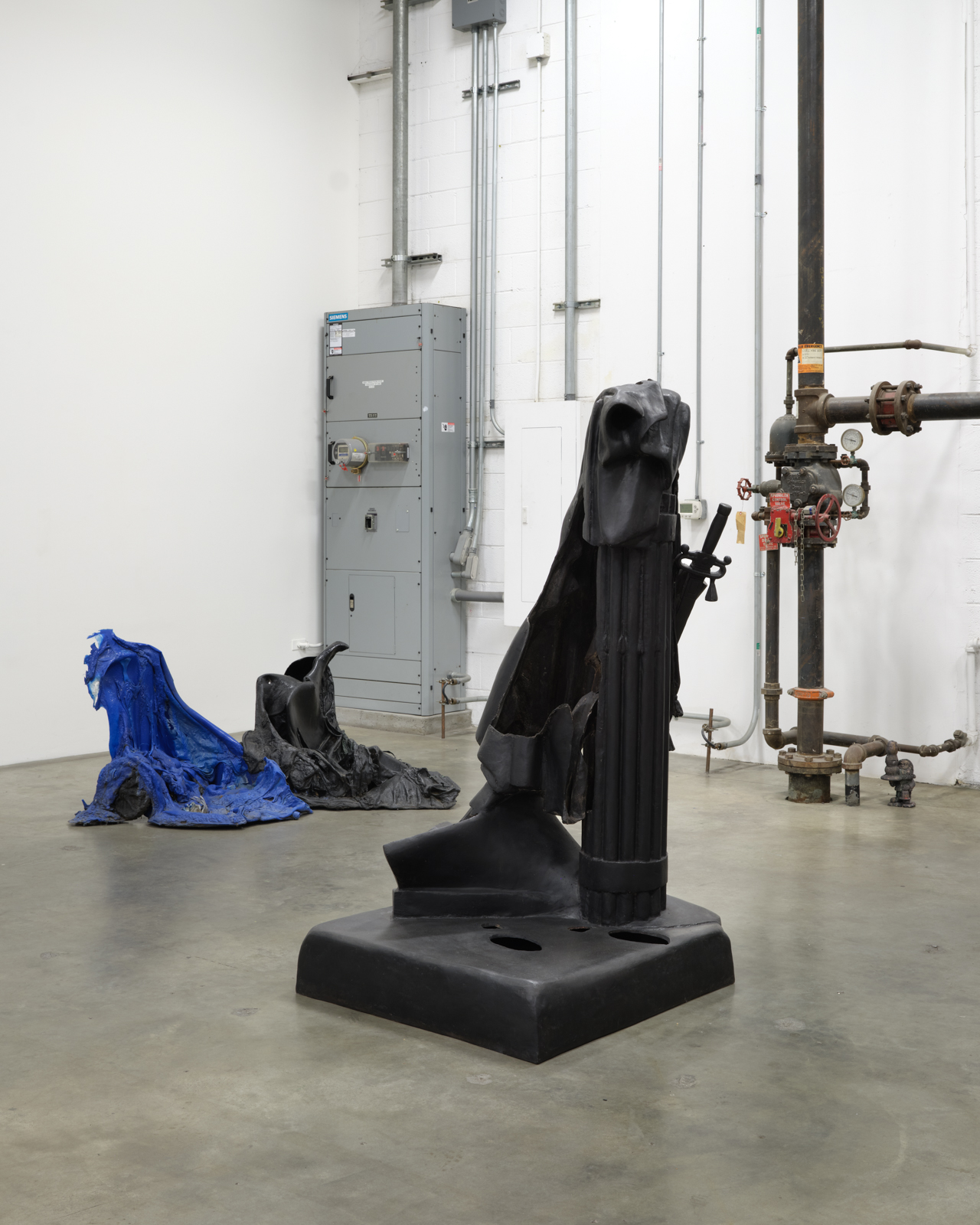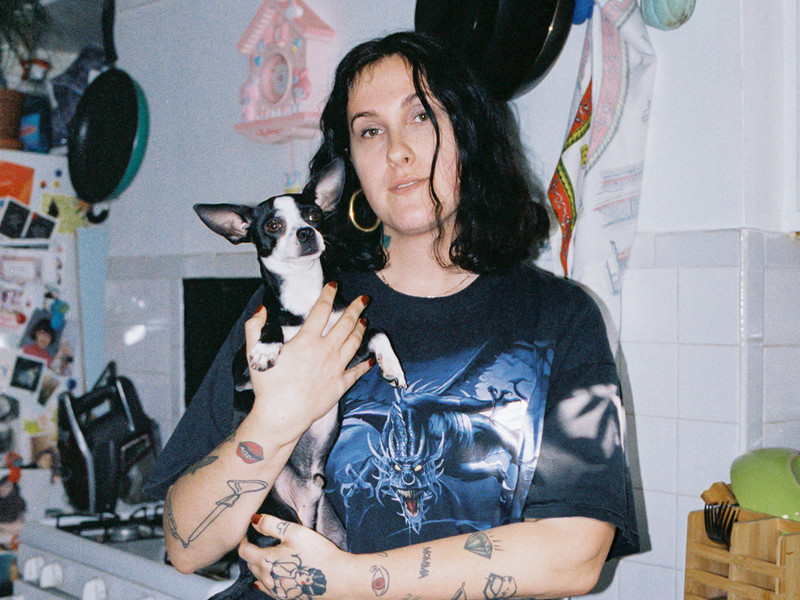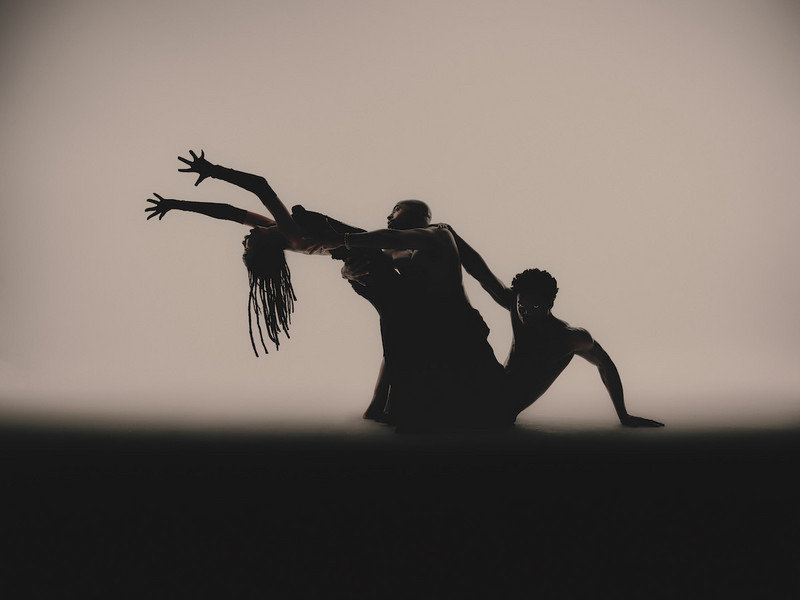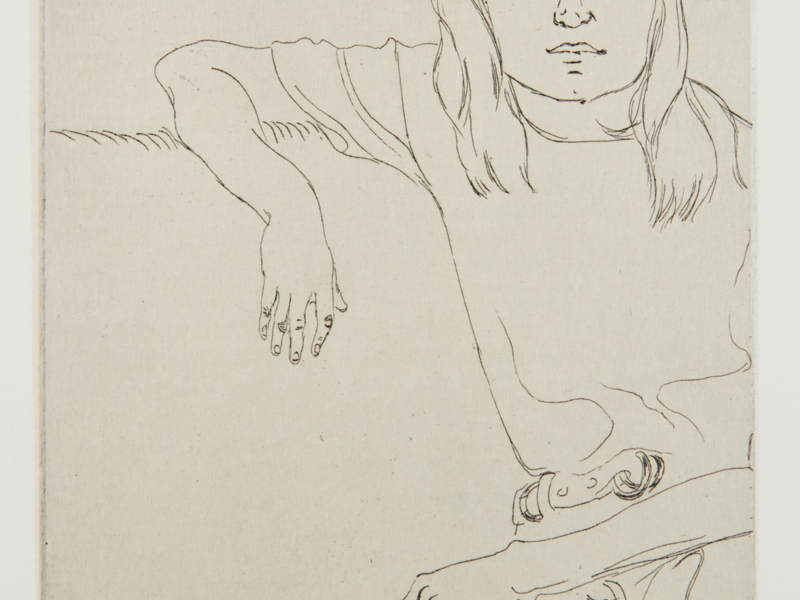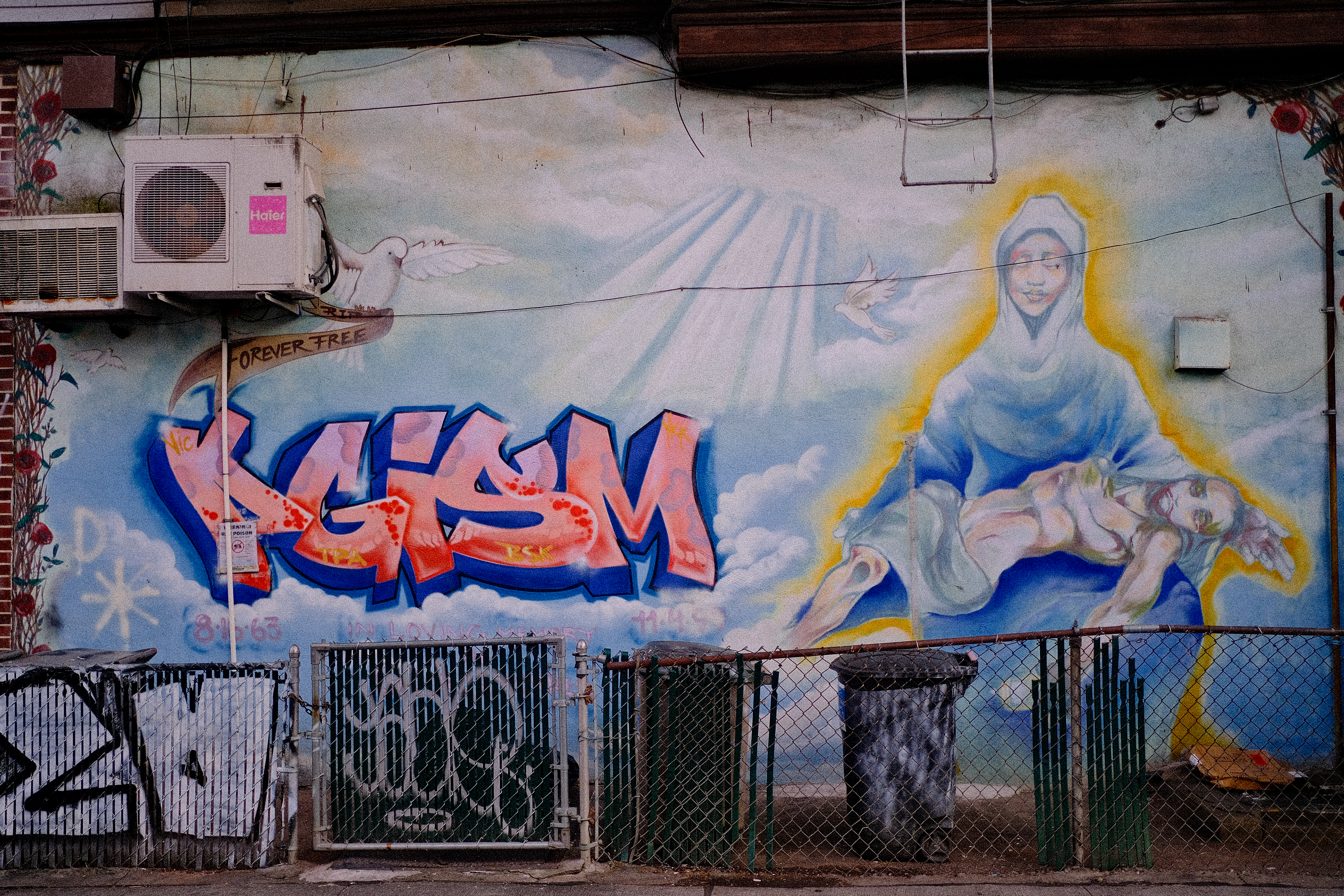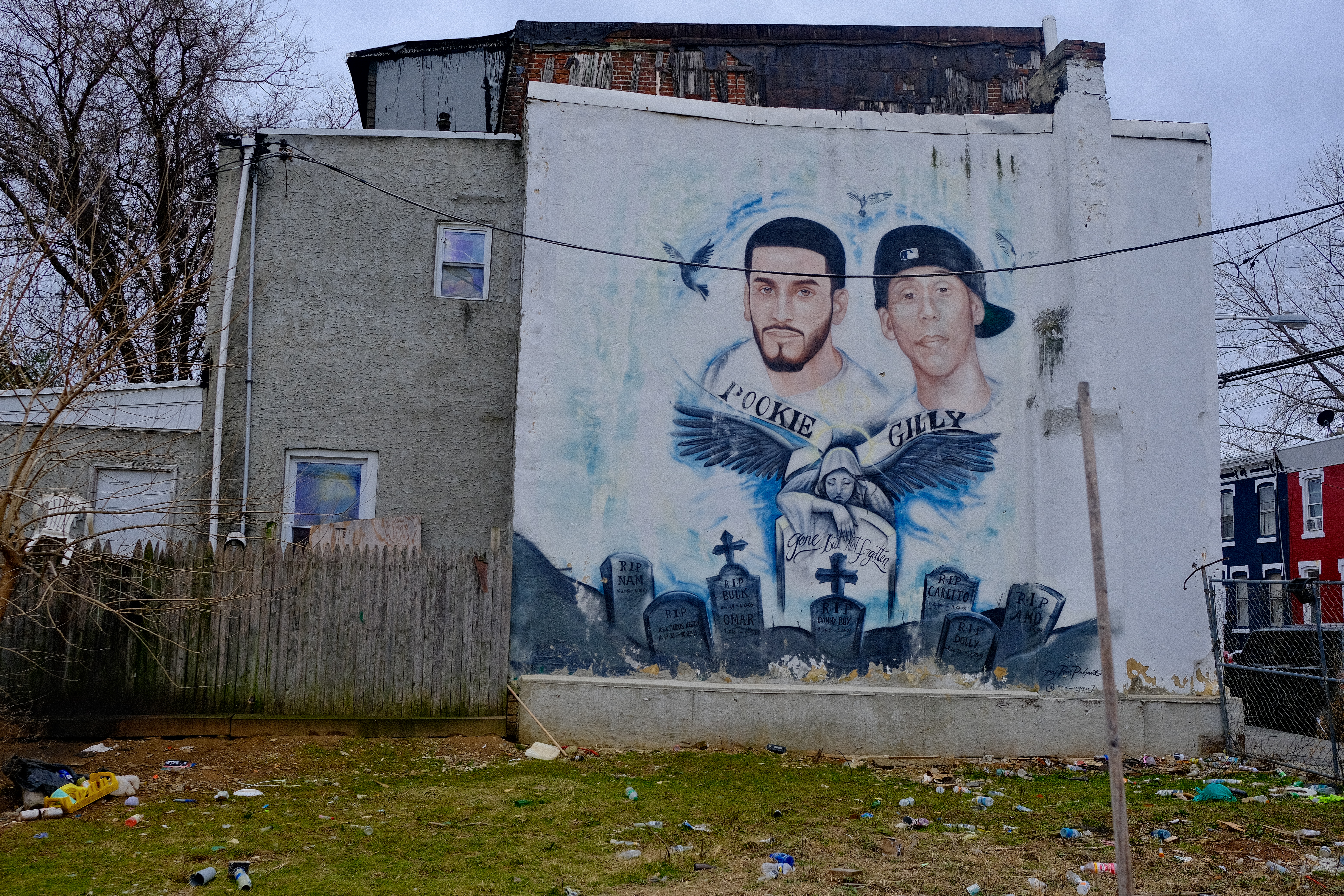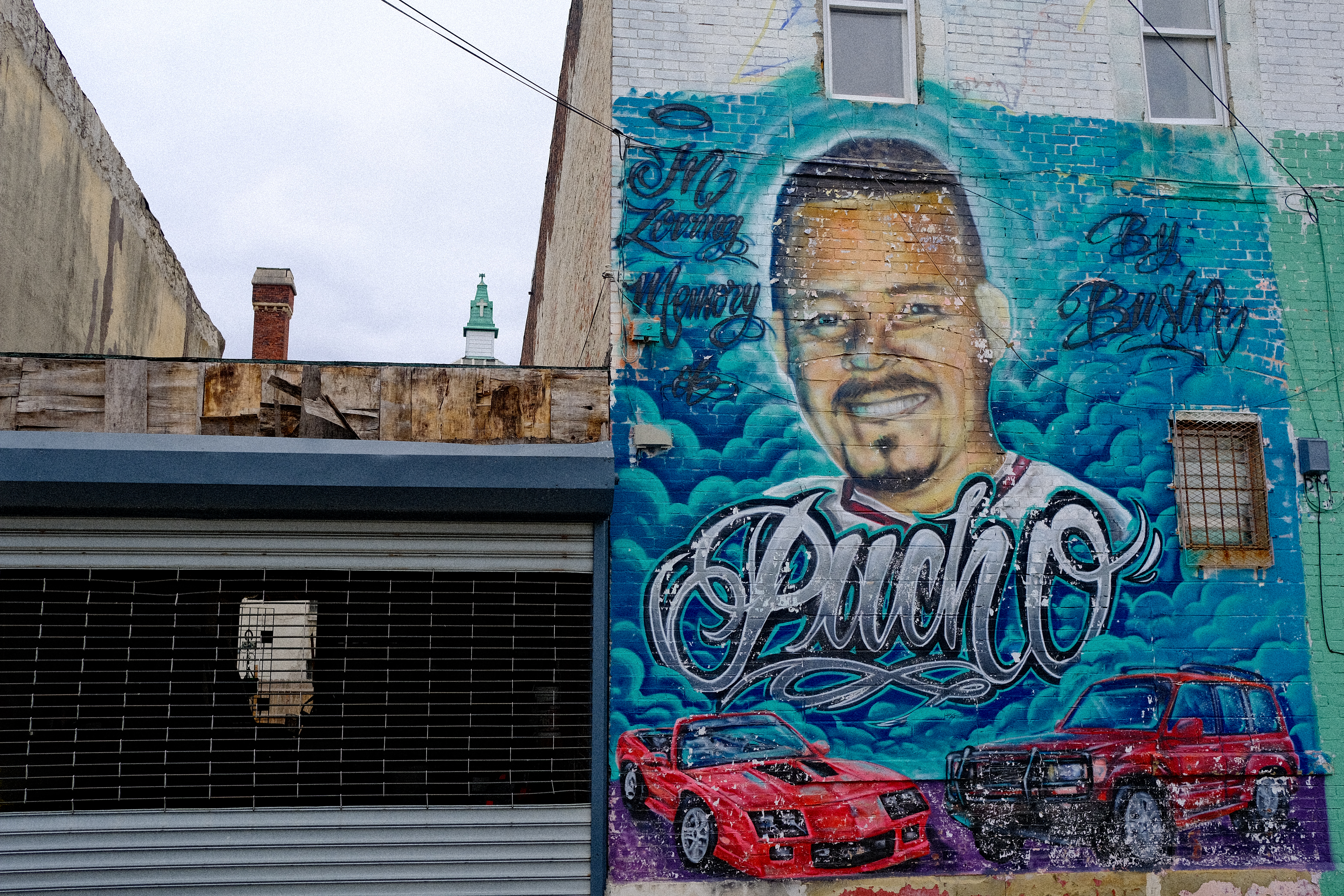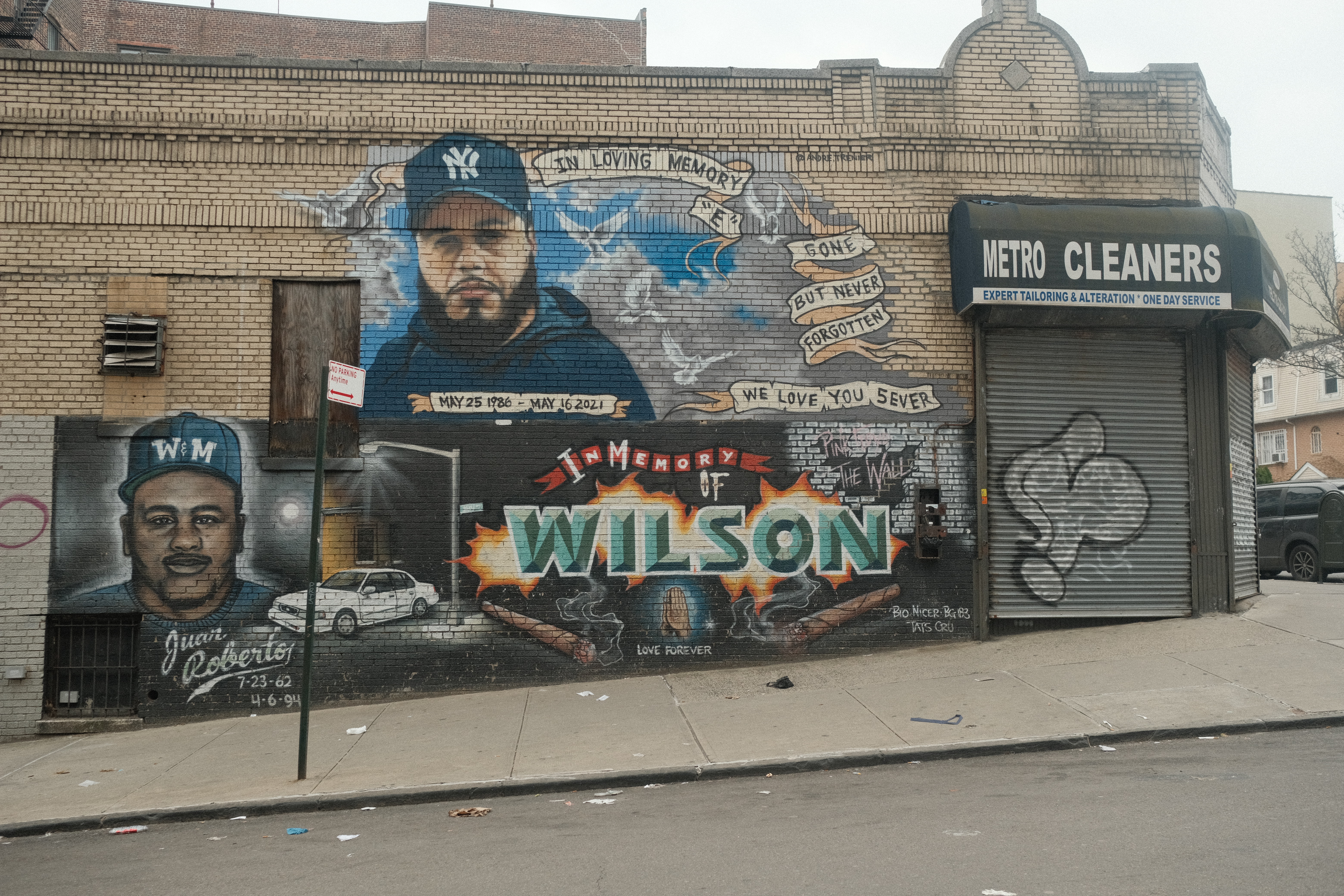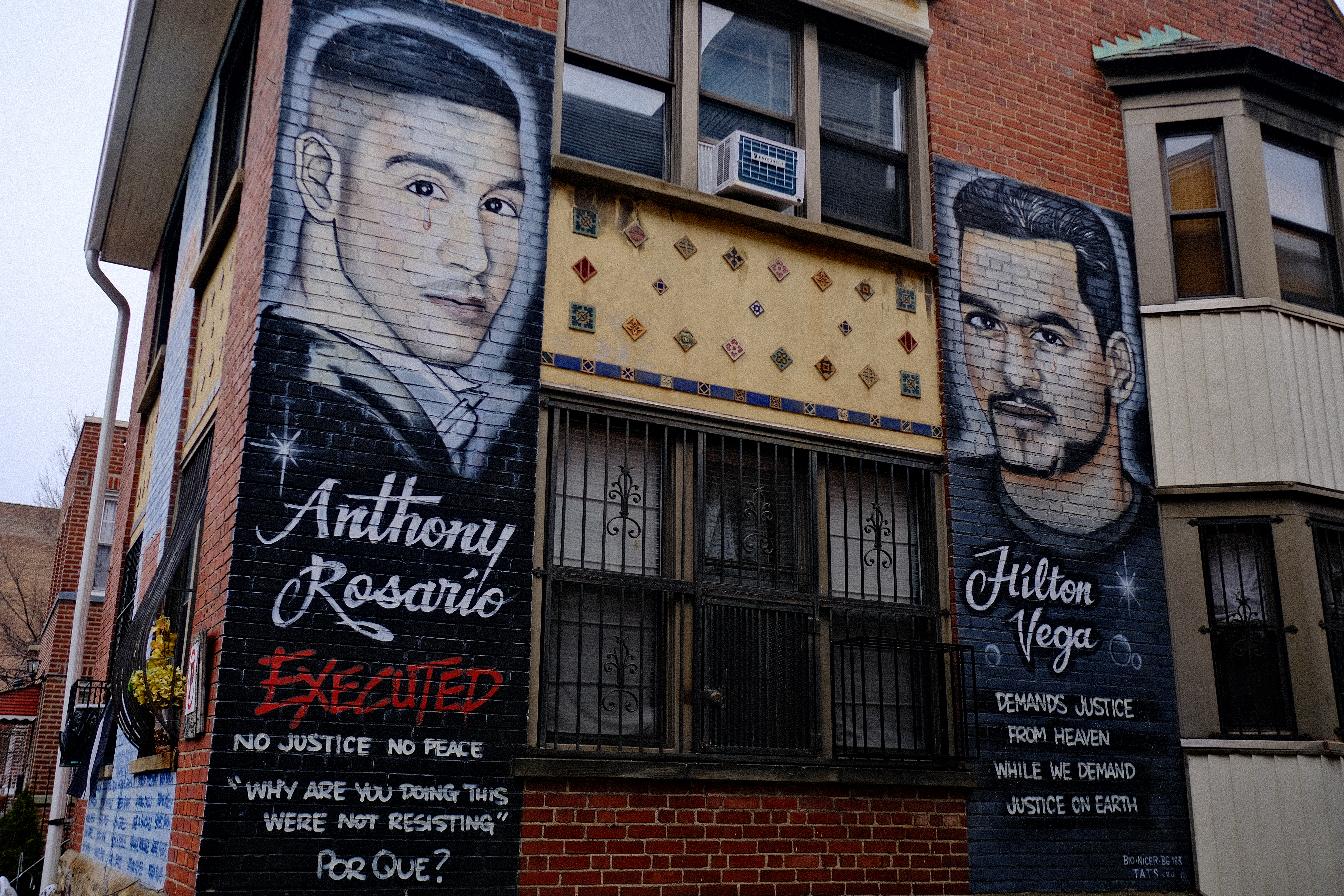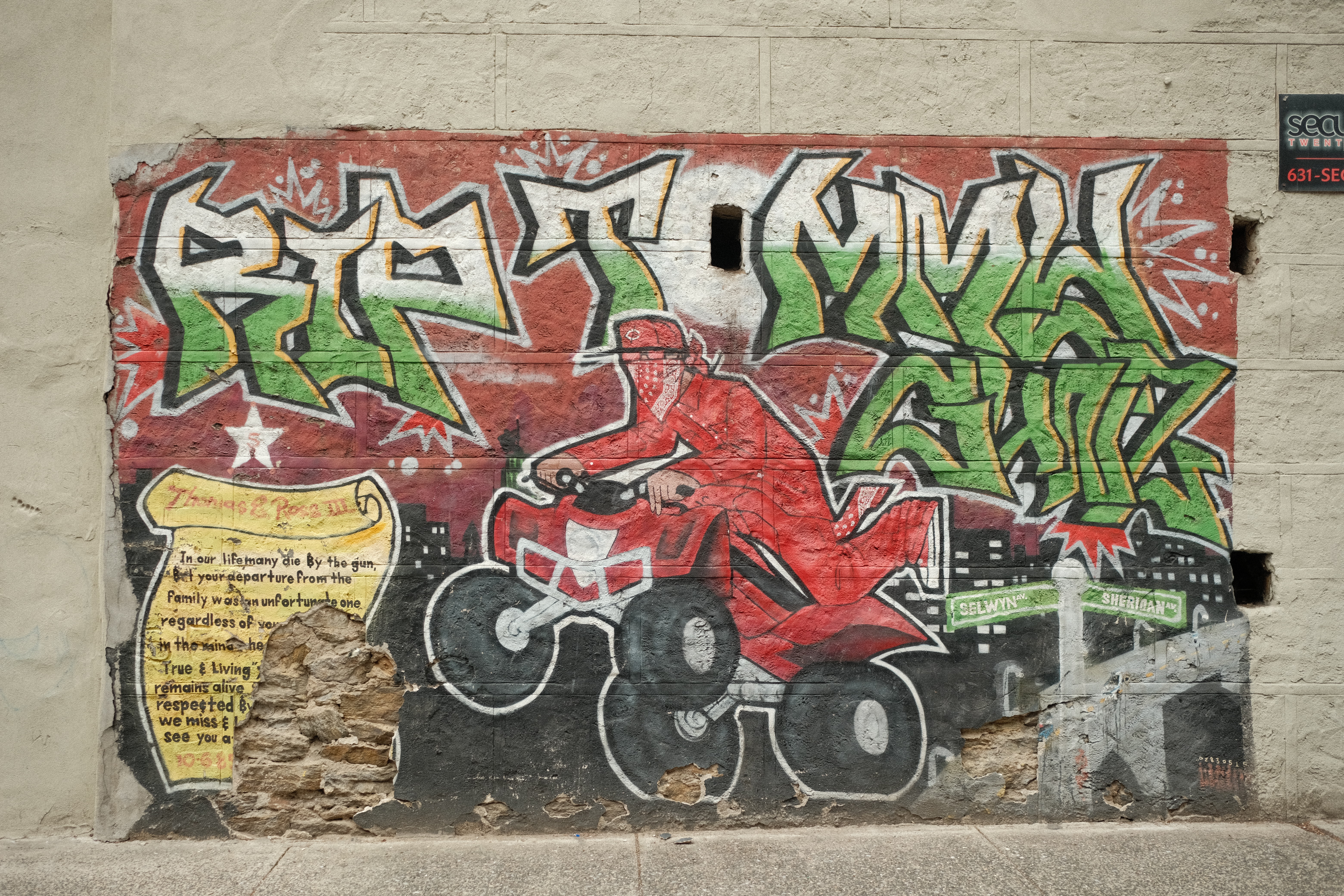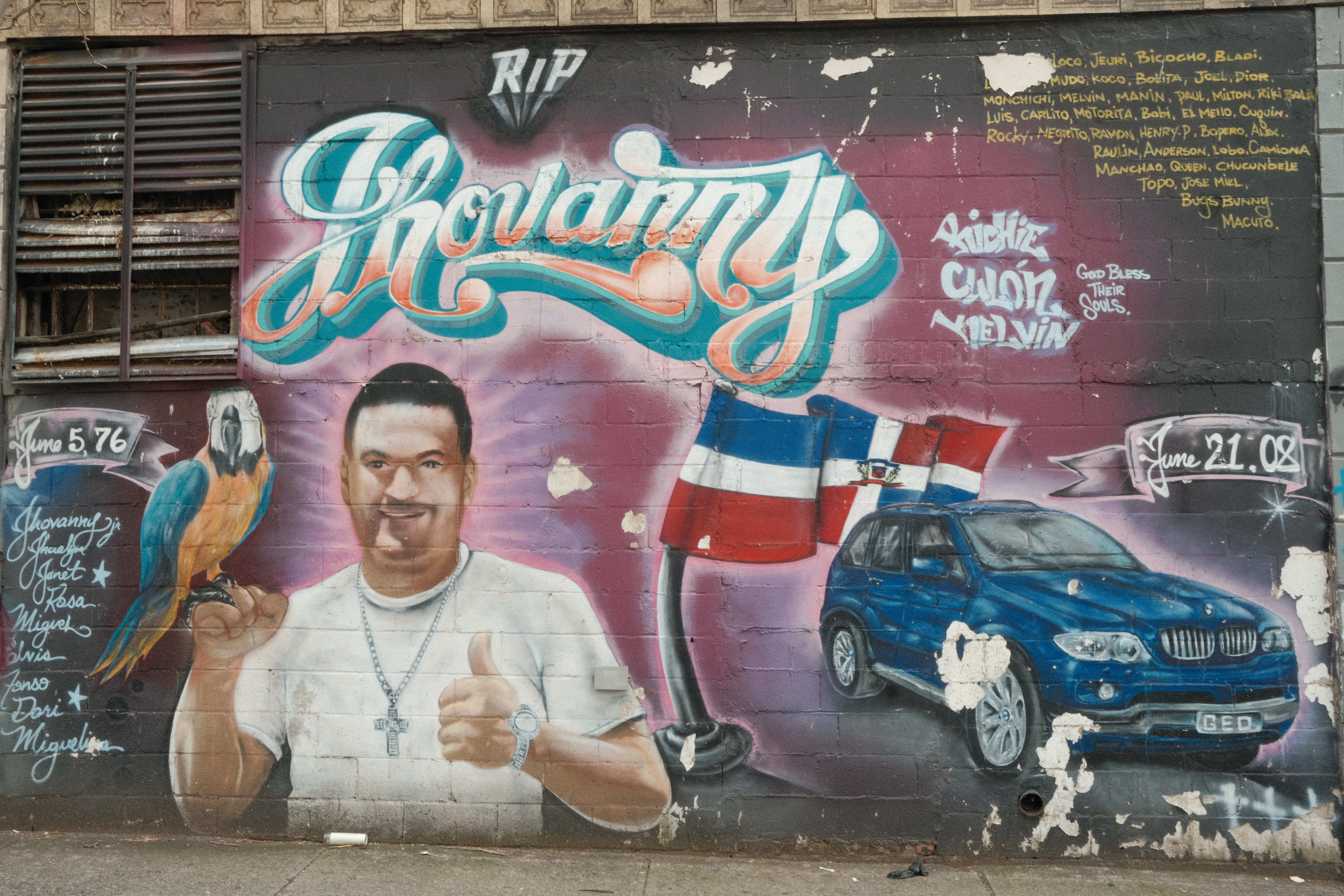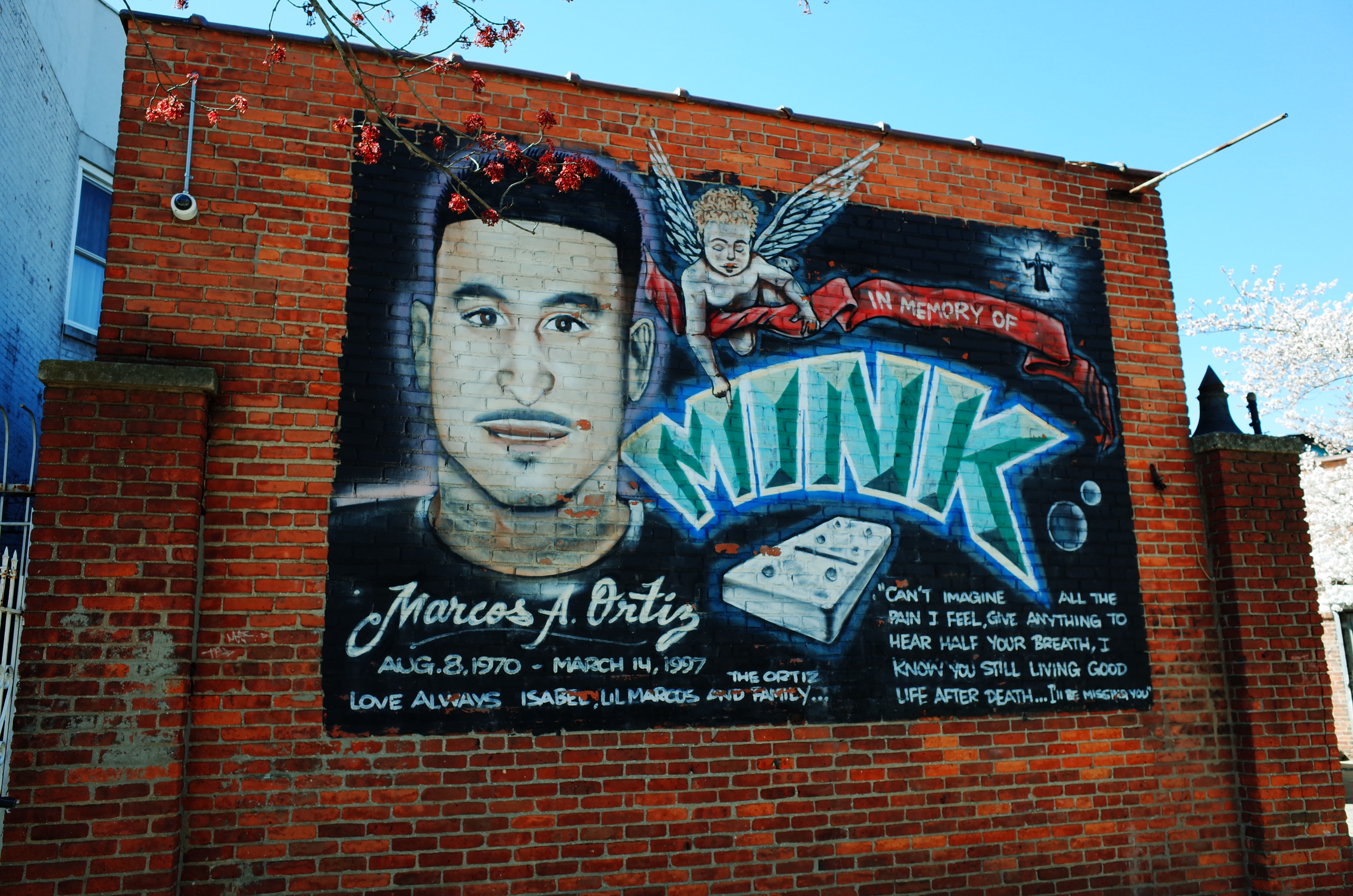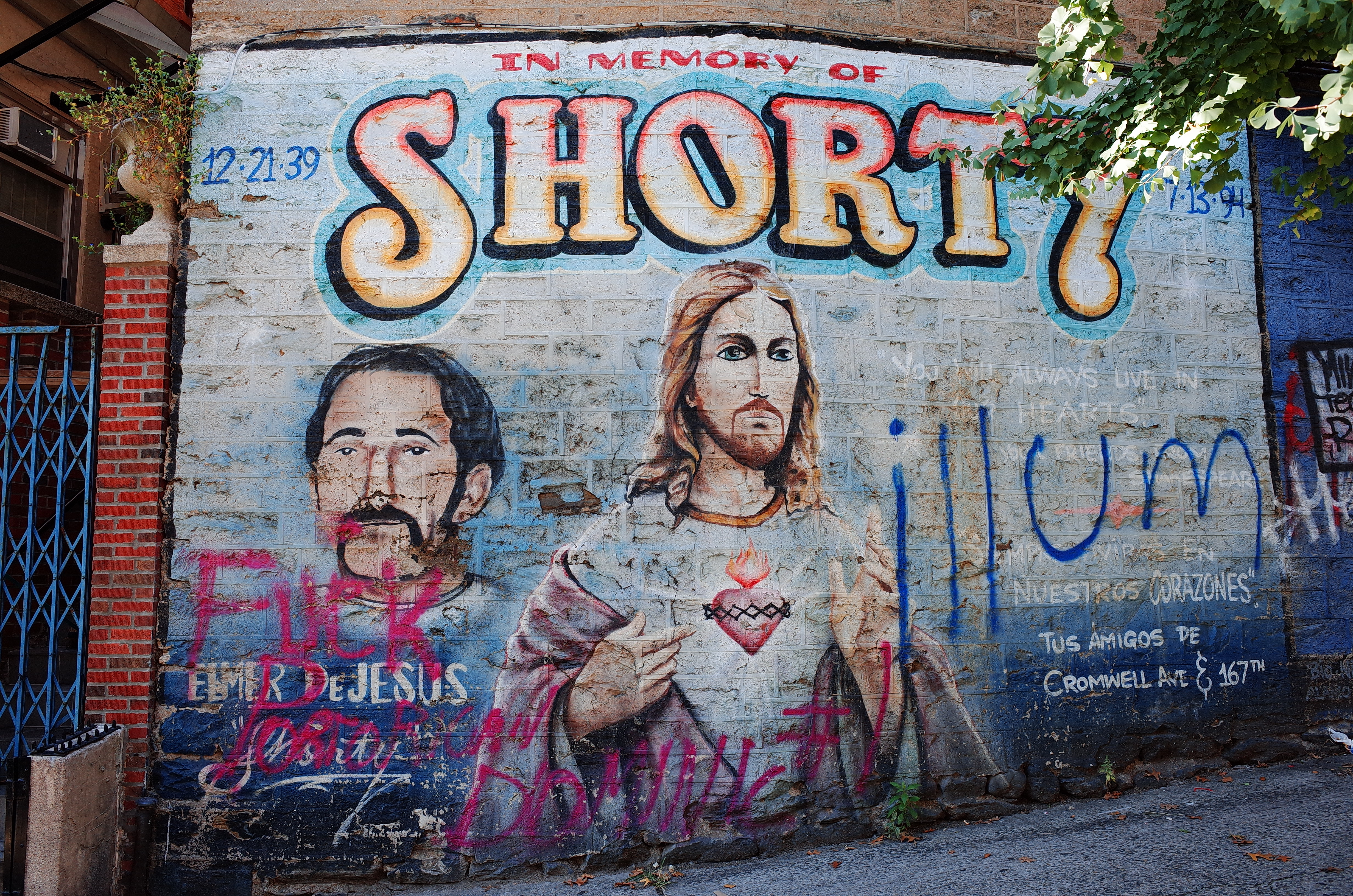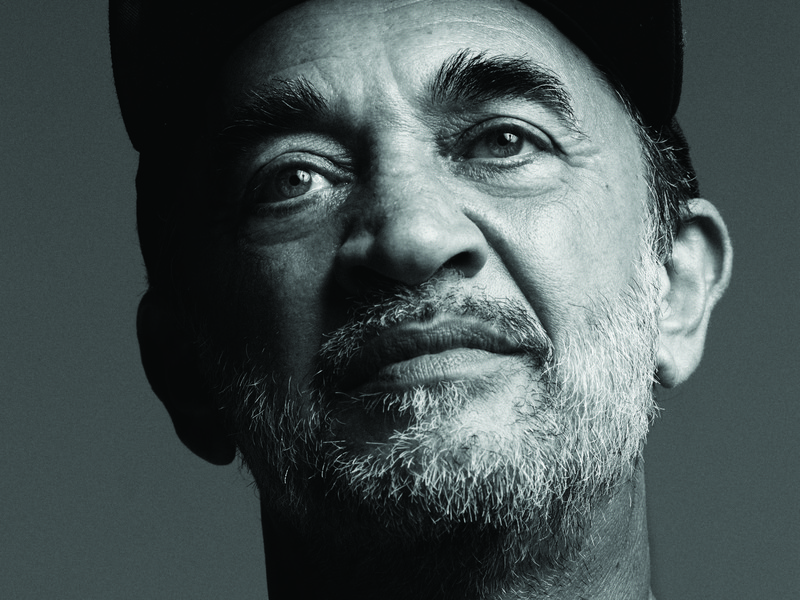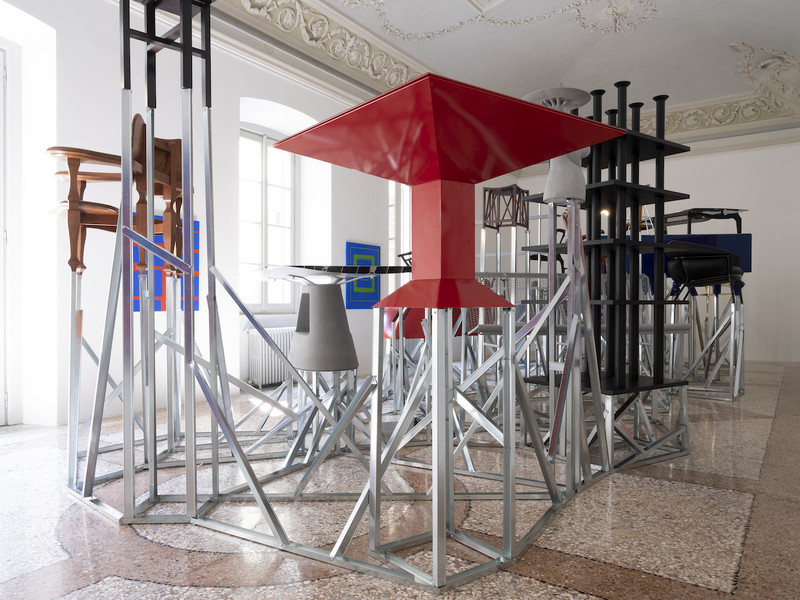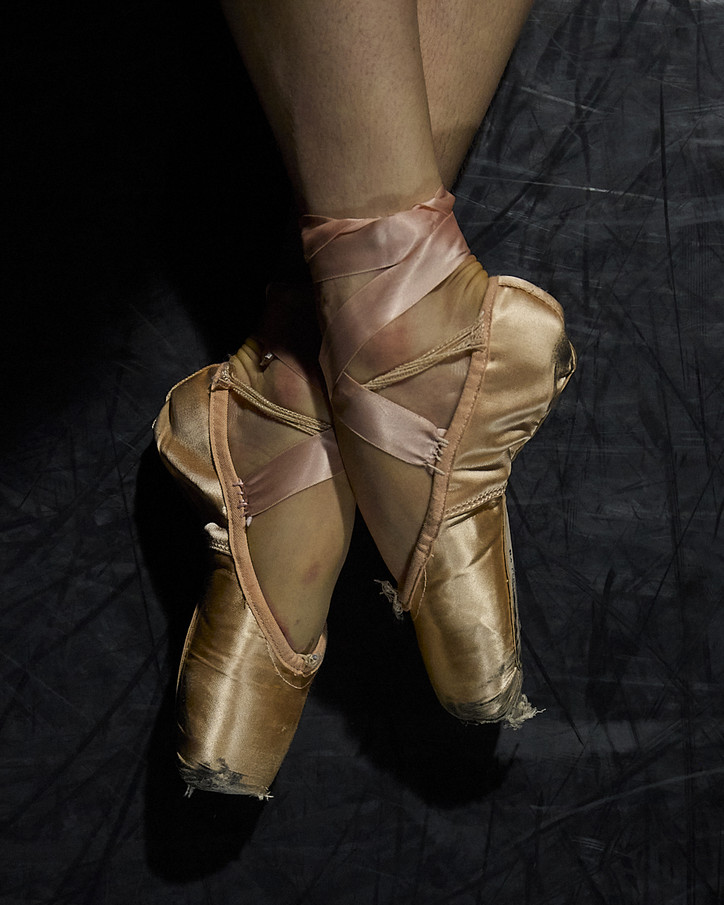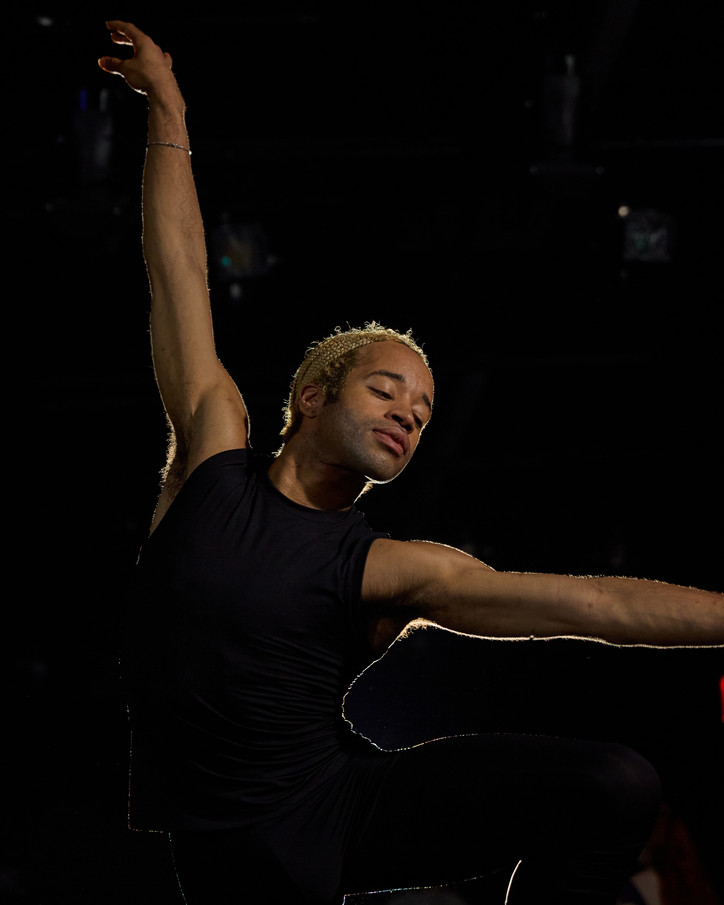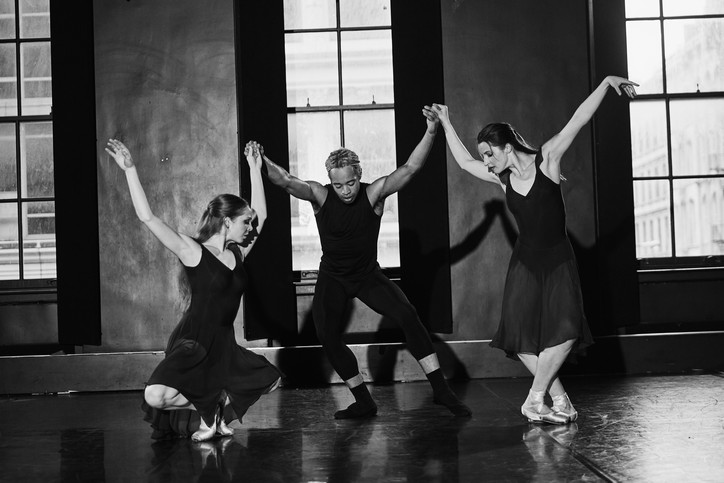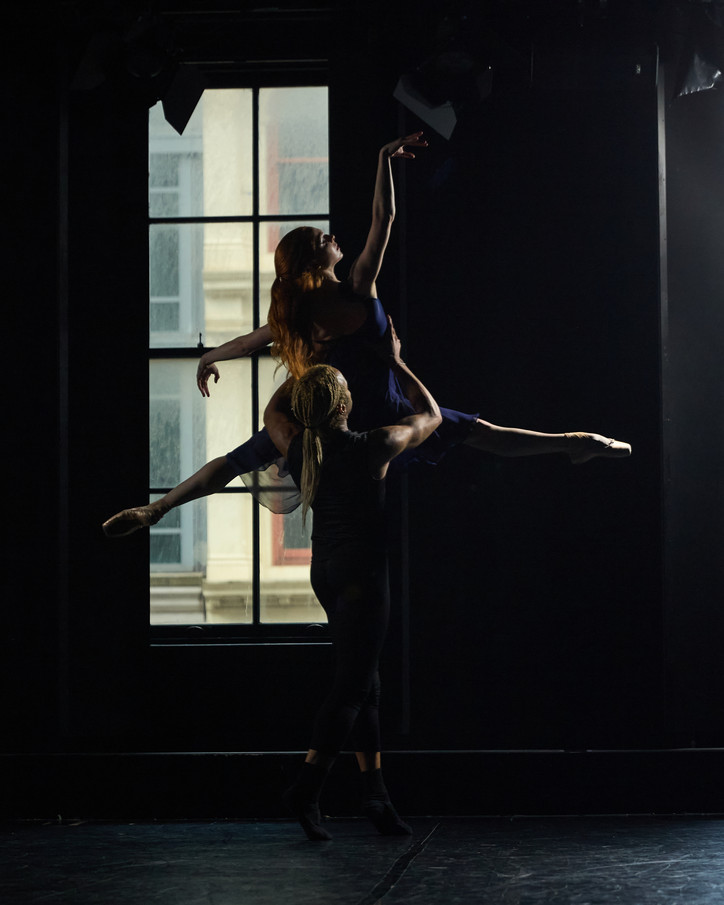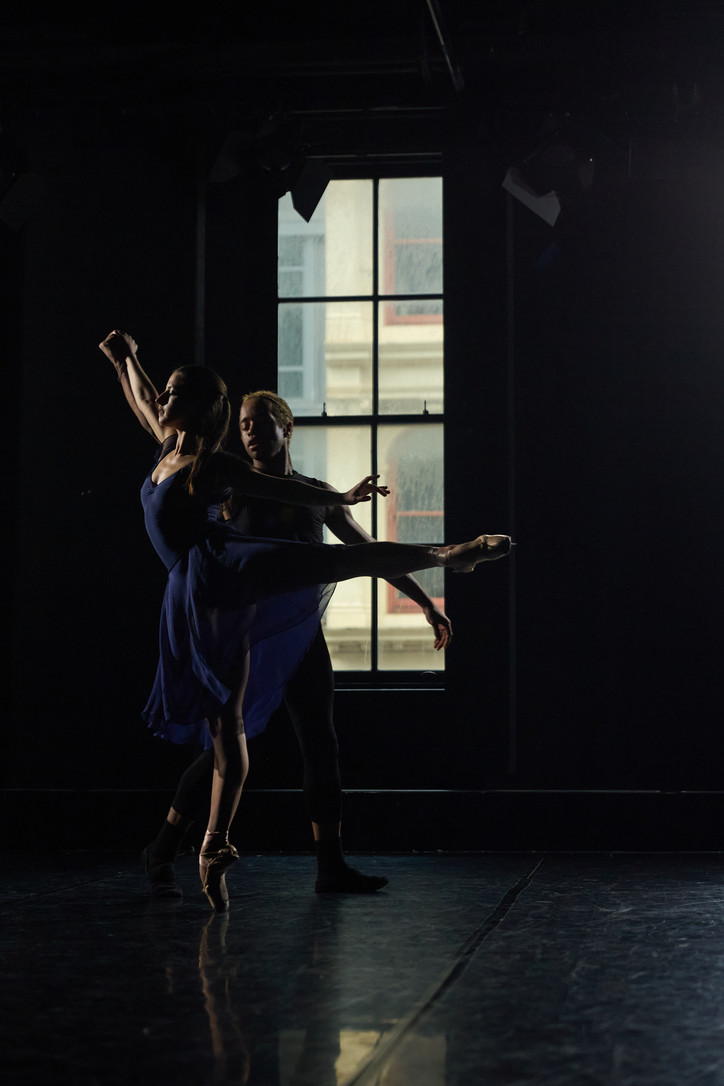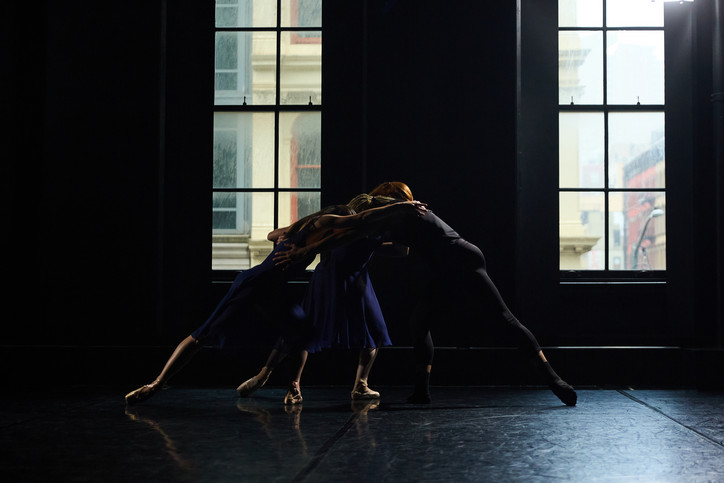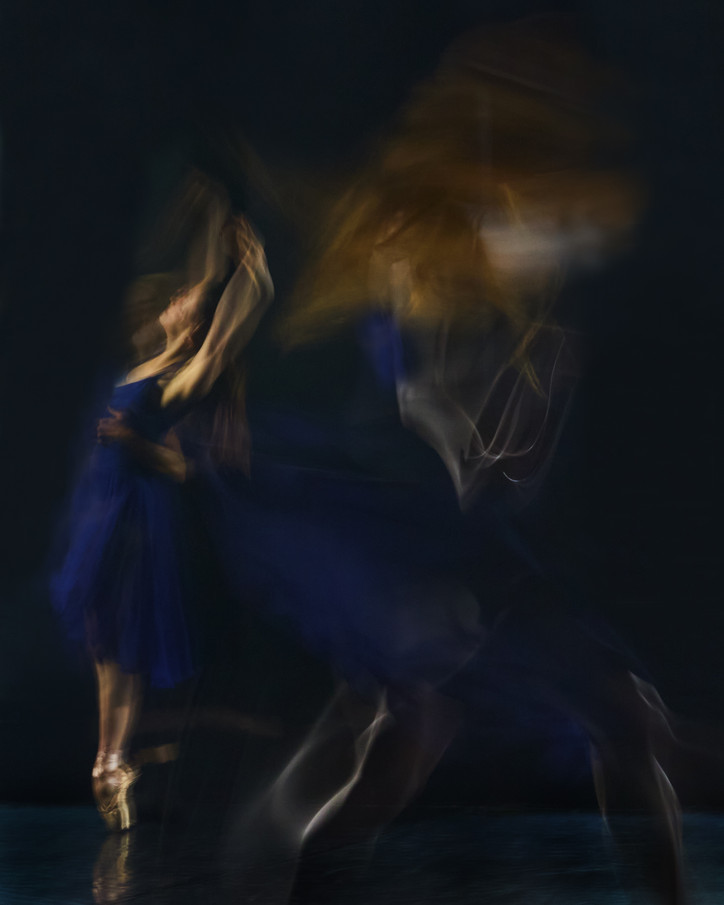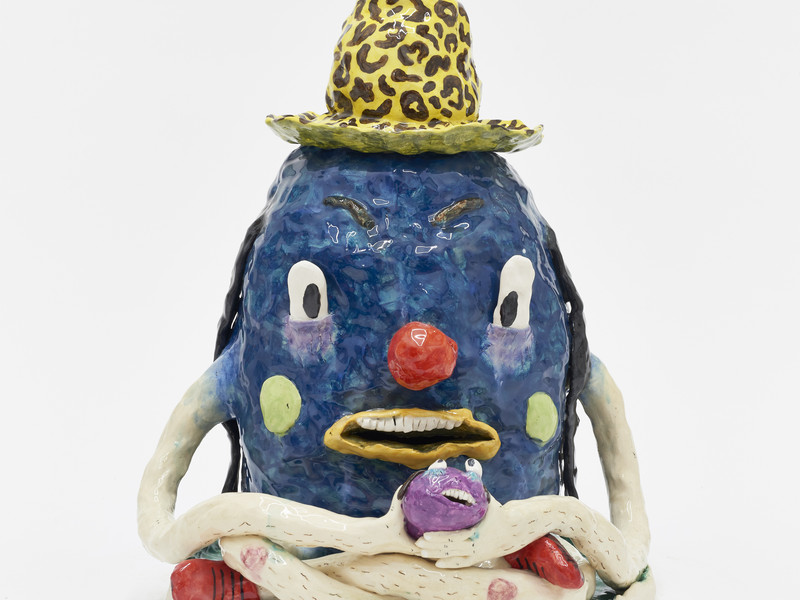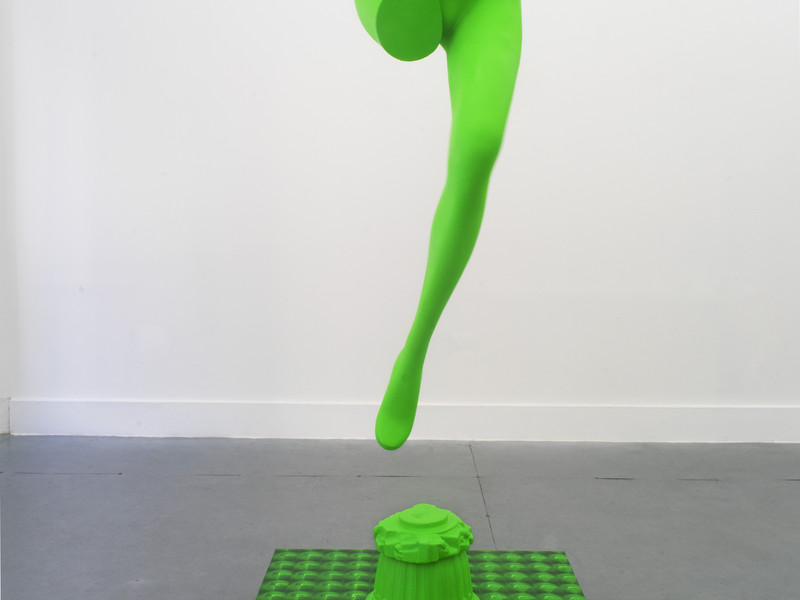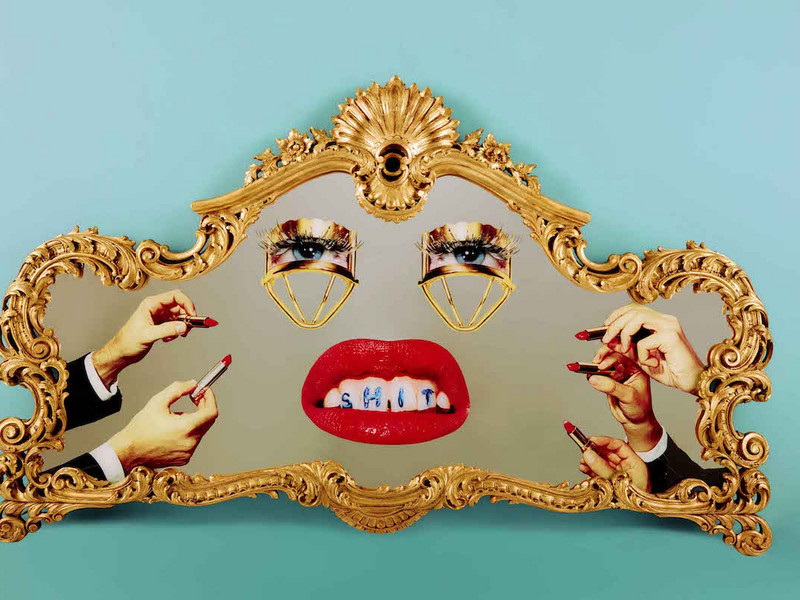Alicia Adamerovich's Psychological Landscapes
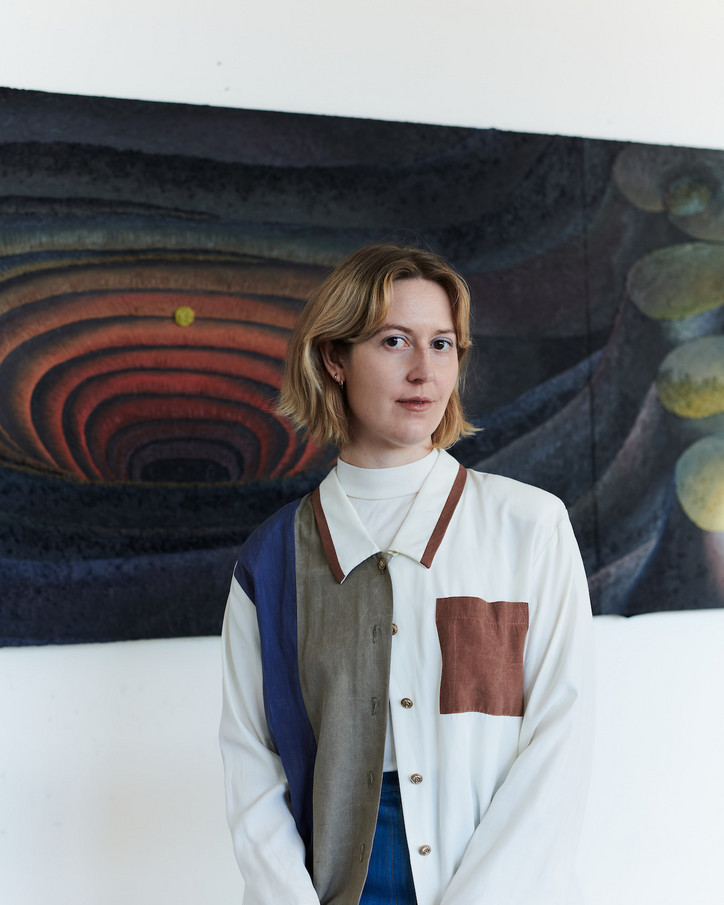
office had a chance to catch up with Alicia to discuss her show and learn more about how she brings these phantasmagorical images to life.
I had to take a second look at a few works in This is the time of the hour to tell that they were paintings and not actual landscapes I could enter. What materials do you work with to create this effect?
Haha wow, thanks. It's starting to become a fairly long process. The texture is a combo of adding some mediums to the priming (gesso) layers as well as building up a lot of layers of oil paint. I don’t want to give away every detail of what I use, but I definitely repaint each entire painting a minimum of three times. Sometimes they end up with five or six layers. Each round I increase, or decrease, the depth and contrast of colors. Bringing it closer and closer to whatever feeling I’m trying to get at.
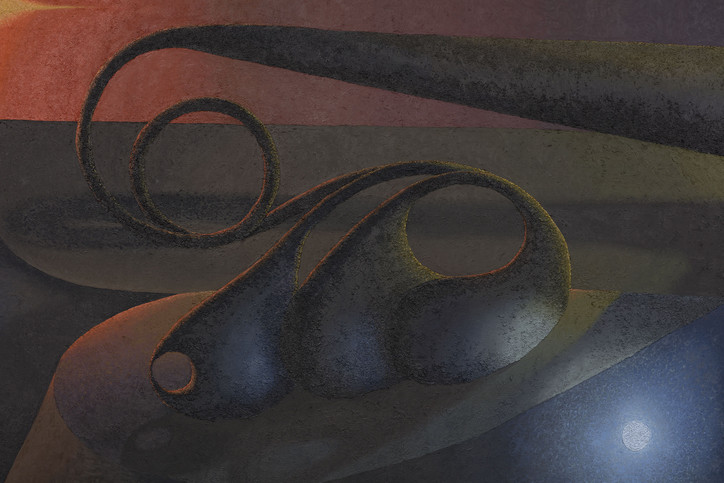
What grounds your process?
Honestly I would say Emotion. I can’t work without some emotional motivation. Even from the beginning sketches, I practice my lines and shapes until they give me the right feeling. Theres no particular rule to it, I just need the shapes to make me feel a specific complexity of emotion. It's all pretty intuitive and can change a lot based on my current emotional state.
Are there any dreams you return to? Any from your childhood?
It's funny, a lot of people ask me about dreams in relation to my work, but to be honest I don’t actually remember my dreams very often. When I do remember them, they are usually so fragmented and loose. I usually just remember the sensations or emotions more than any visuals. Most of the dreams I remember are stress-related or nightmares. There are a few recurring ones that I’ve had since childhood. In one I’m on a swing moving peacefully for a while, when suddenly, the chain releases the swing and I fall to the ground instantly waking up. Sometimes the same type of dream happens with me walking on a sidewalk and then tripping. I actually love these dreams for their banality. That, of all the dreams I could remember, I tend to remember these almost generic ones. I find that interesting, because it's a dream I know other people are having and maybe never think twice about it. Also the teeth falling out dream, I have that one about twice a year, and it's so common. The collective consciousness of it all is a point fascination.
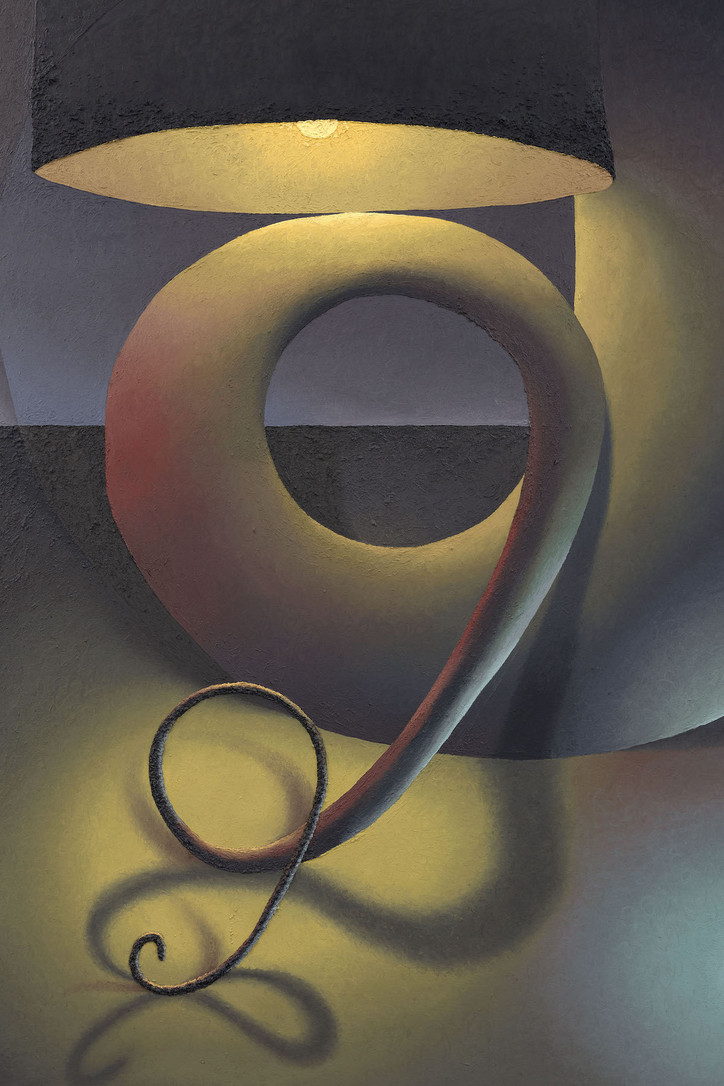
There’s a light source in every image that seemingly becomes the focal point of the work. At what point in the process do you introduce the light source? Does it impact the trajectory of the entire painting?
The light sources are loosely planned. Sometimes I have these orbs in the composition and then they might later become a light source. Other times they just stay a shape or become a hole. I like to push and pull your eye through a composition. I like to play with depth and light to make the images almost disorienting. The light sources are part of the play. In some works they are there from the start but often they are added in later layers. Its almost like a character or tool I can return to when needed.
What creatures from 80s sci-fi features inspired you in particular?
I don’t know if I actually have inspiration based on specific creatures from 80s sci-fi films directly. I’m more inspired by the visual language and world-building of a lot of sci-fi films. I’m a big Cronenberg fan and I love the different worlds he creates. Sometimes they are very normal seeming, but the lighting and the way people act is what makes them peculiar. It's more the overall attention to small details that makes them special to me. I grew up watching his remake of “The Fly” quite often at a young age in the mid 90s. I was always drawn to its grotesque qualities, but also because it's a tragic love story. I love dramas and doomed characters as much as I love sci-fi.
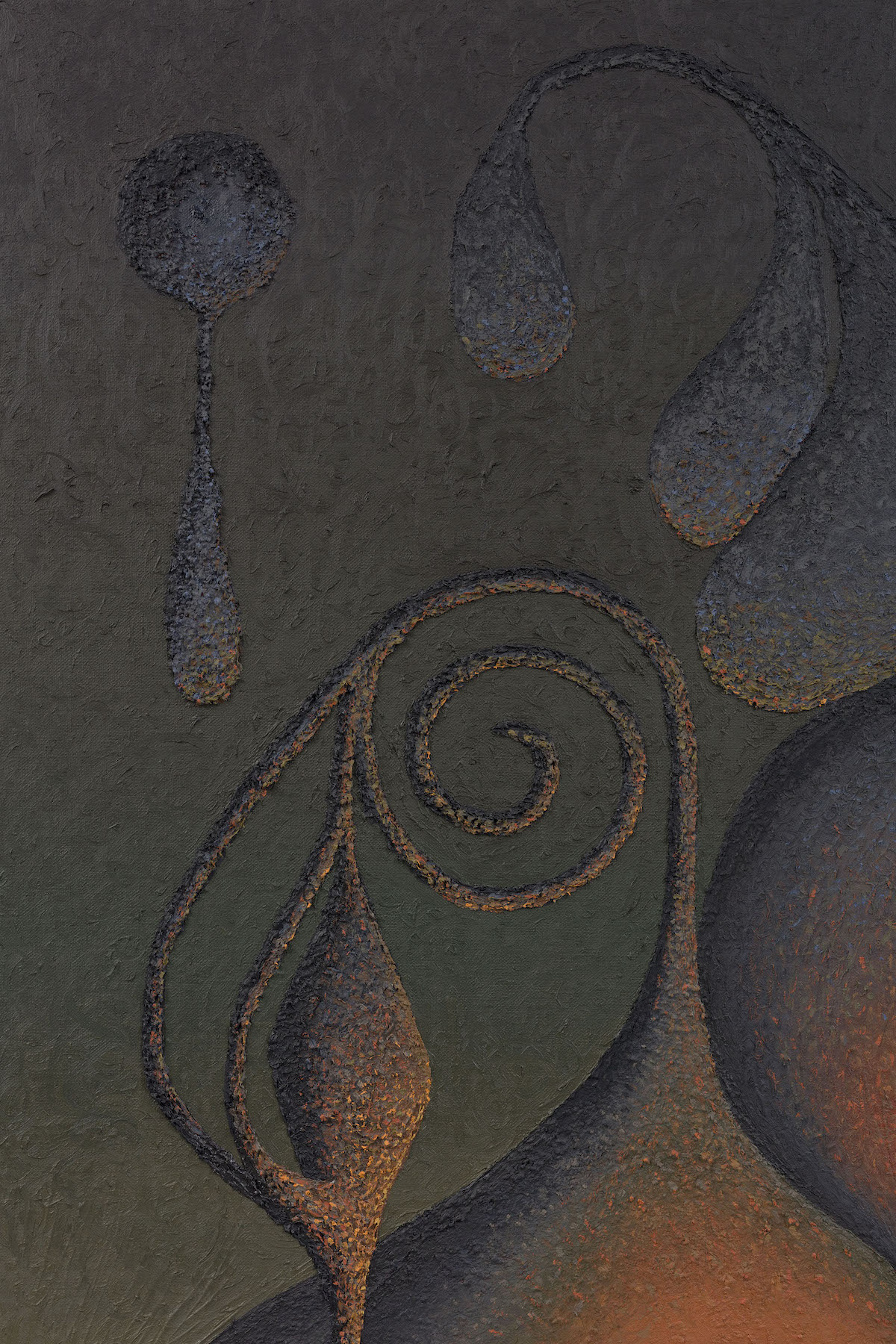
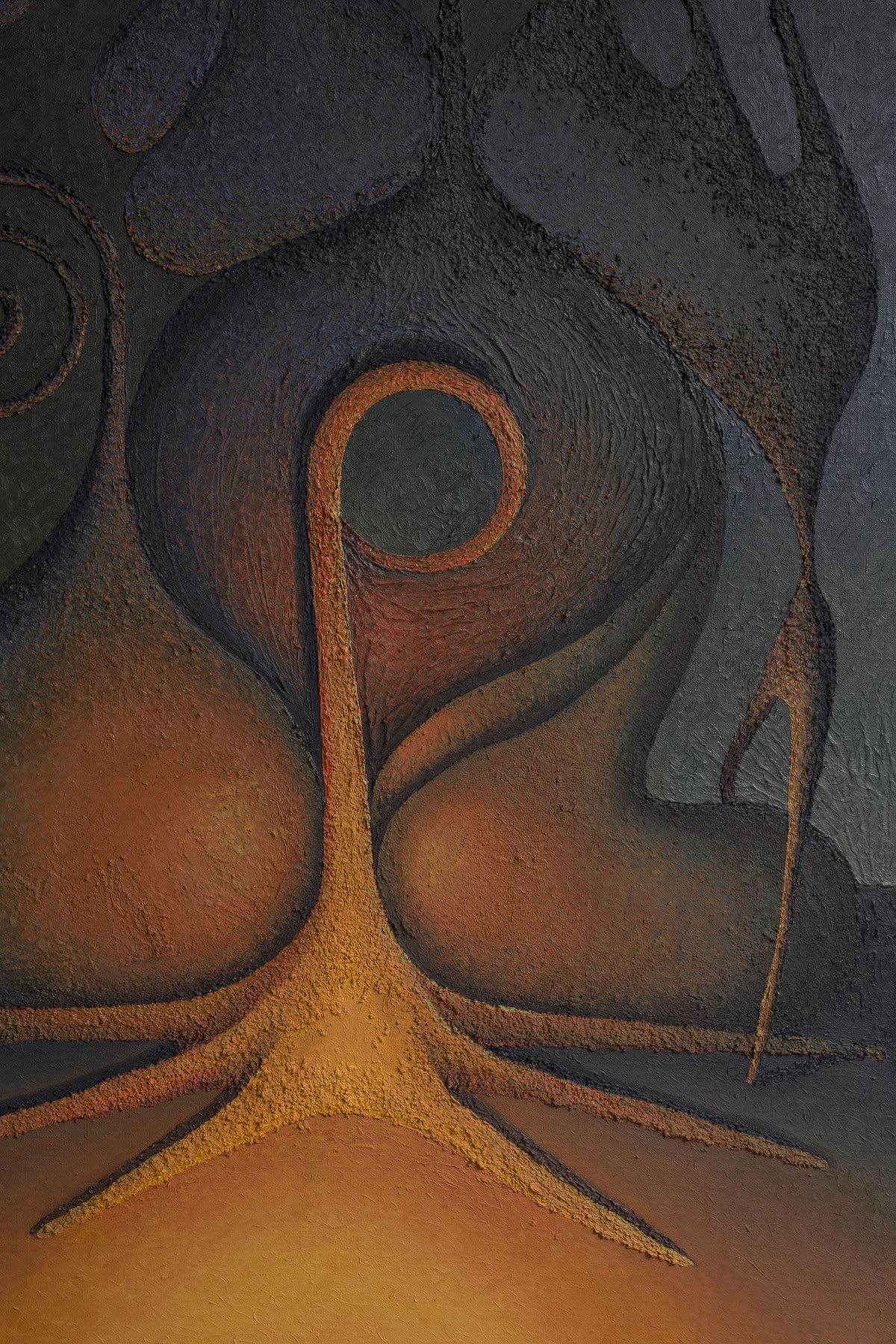
I know that what you’re making is psychological. However, I still think of microscopic images — a zoom into a nucleus and mitochondria in "Blessed be thy cavity" — and feel like I’m peering into myself, making me a bit uncomfortable but also curious. If there had to be a point, is that it? The feelings that arise, whatever they may be?
Yes that is part of it. I’m trying to create a rise in the viewer. Whatever that rise may be is less specific and I like it that way. I don’t want things to be fully understood, because that is life. I want people to want to study and figure things out, but maybe never fully feel accomplished. That uncomfortableness is what I’m often after. It's interesting that you bring up the microscopic images, though. My mom was a biologist and a teacher (she’s now retired) and during the late 80s and early 90s she studied small mammals at the Powdermill Nature Reserve which is the Carnegie Museum of Natural History’s environmental research center. She would always bring home microscopes and rock sample collections for me to look at when I was very young. When she started teaching, I went on field trips with her science class to study microorganisms at the Loyalhanna Watershed Association. I even interned at the Association after high school with their Youth Conservation Corp. I’ve always had a lot of natural and scientific influences in my life that I carry with me today.
Do you enter a state of trance when working?
Something like that for sure. It will sometimes take me half the day to get ready to work. I need to take care of any small tasks that will be distracting me first — like emails… I give myself two mornings a week to catch up on emails, order supplies, schedule visits, etc. Then once that is done I can let my mind wander a bit. Once I’m ready to paint I usually need something to listen to. I consume a lot of podcasts and I tend to work better when I can kind of let my mind get lost in something. Then the painting becomes pretty intuitive and automatic. Woodworking is different though… partially because it requires some loud equipment so its a little harder to hear things. I tend to switch to music with carving work, the rhythm helps since a lot of it is tedious and repetitive.
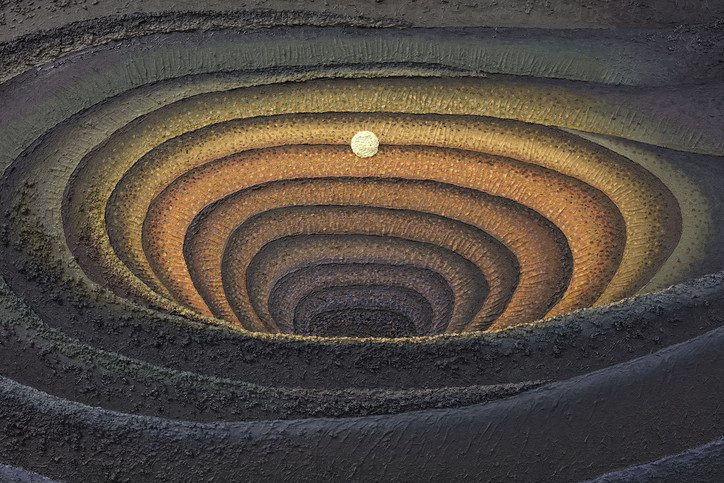
How much time do you spend alone?
Quite a lot! I prefer it that way. I haven’t shared a studio for quite sometime and I don’t know if I could ever go back to it full time. The only person I have shared with recently is my partner, Christopher Daharsh. It worked out pretty well, but we both still usually prefer our own spaces. I tend to get distracted too easily with other people around. I like having the ability to get lost in my own thoughts and not feel self conscious about how much time I’m seemingly wasting. (The constant mental battle of guilt and productivity) I moved to a new studio last fall thats a little farther from the train and in a much quieter area. There's definitely no distractions like coffee shops and restaurants, but also the building itself has less units and feels more private. I think eventually I would like to work outside the city and more in nature. I don’t socialize too much during the work week and tend to save that for openings and weekends.
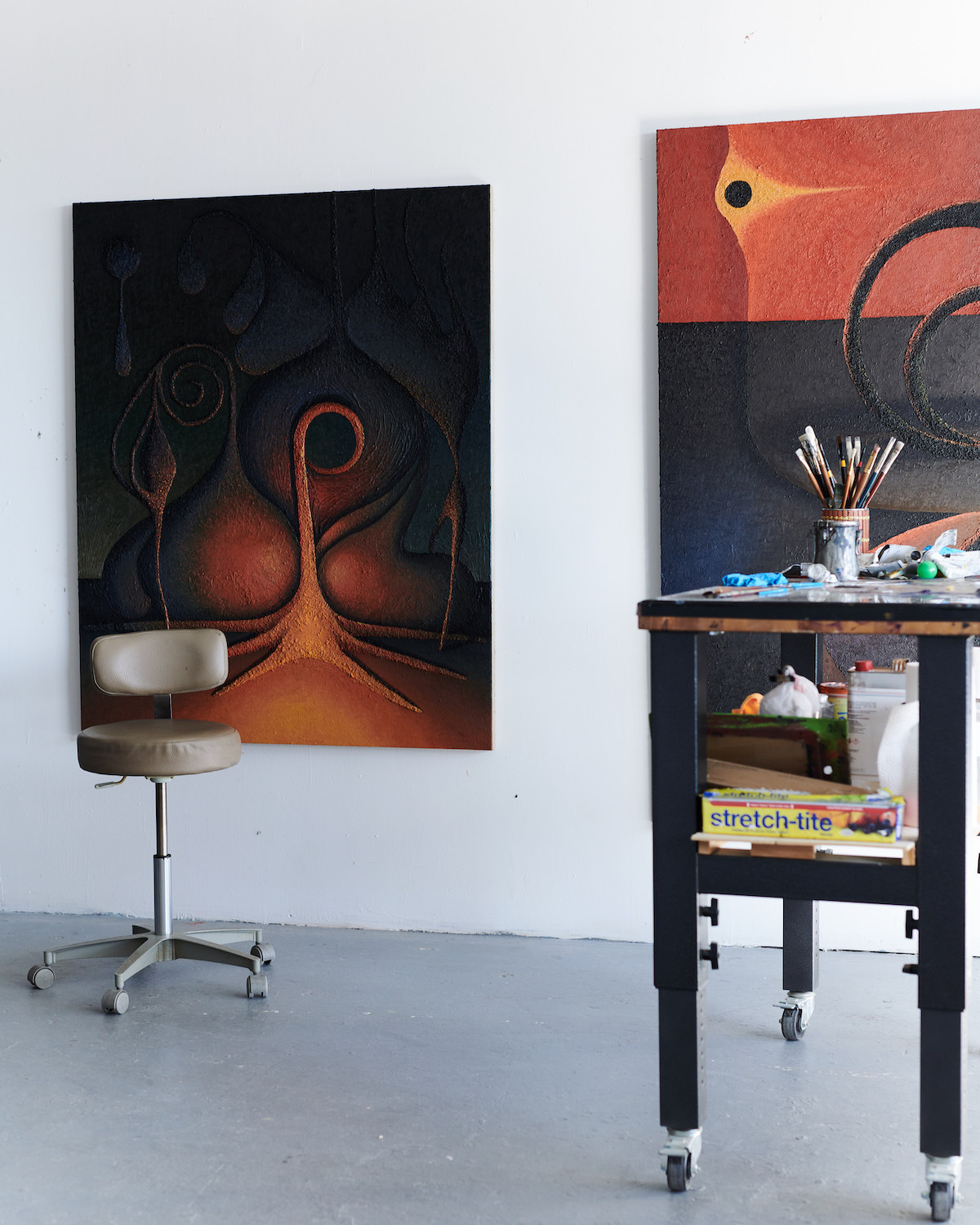
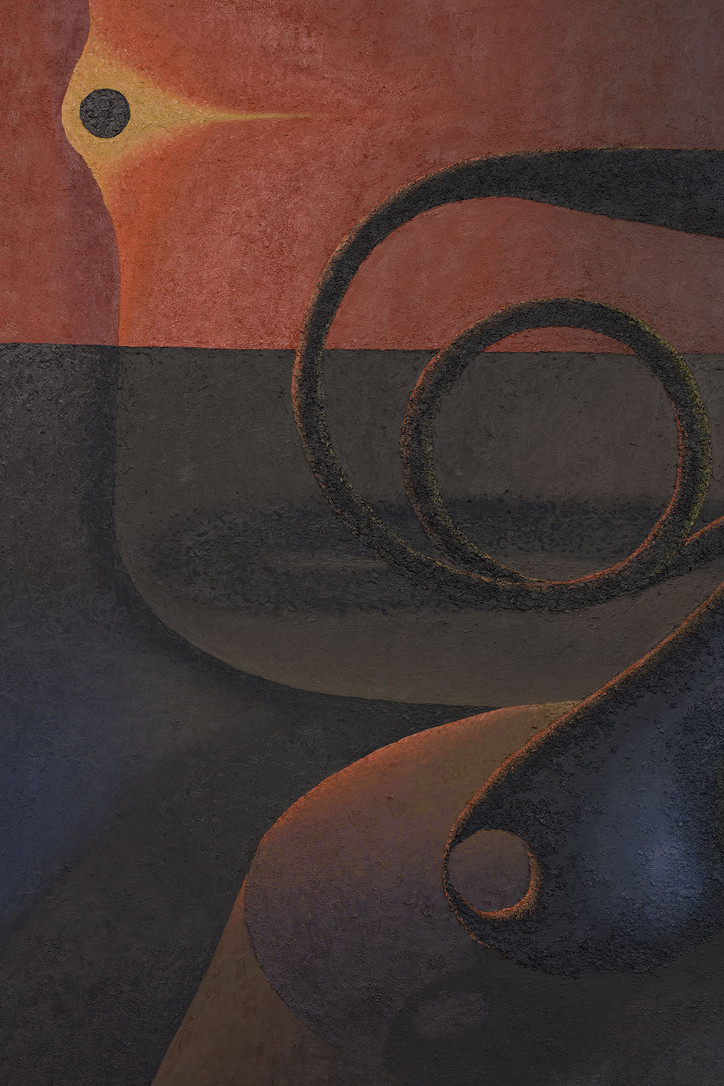
How did your process evolve during the making of these creations?
Well, I made the largest painting and sculptures I’ve ever made for this show. So that was a learning experience. Actually, I think for each of my shows over the past 2.5 years I’ve been pushing myself with trying something new each time. Each show I’ve jumped in scale but also have tried different ways of using wood. I think a large part of my practice is putting myself in an uncomfortable position and seeing if I can figure my way out. I love a challenge… even when I hate it. Haha.
When looking at it as an entire body of work, I can’t help but think, ‘what does this even mean’. You capture that universal feeling of ‘none of this makes sense’ well. Would you say that you see the world for what it is?
I’m not sure any of us do! I think thats an impossible thing to answer, but fun to think about. I think I see the world how I see the world. And that is probably similar to some other experiences but it's hard to ever know. I think the world is a large mystery and I think that's humbling.
